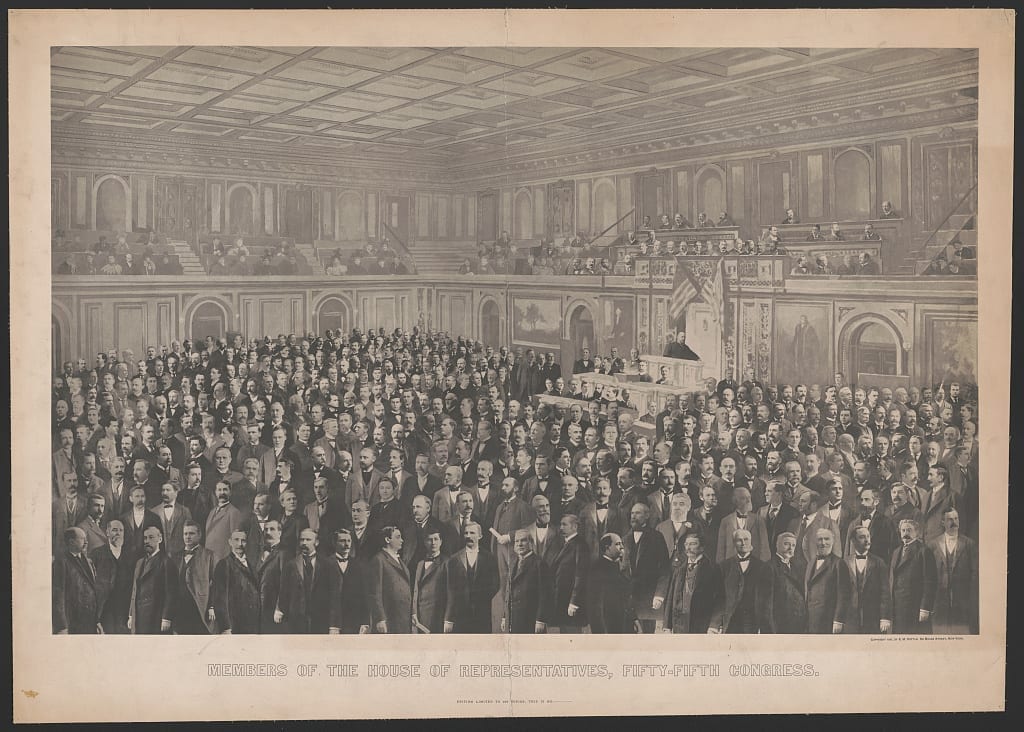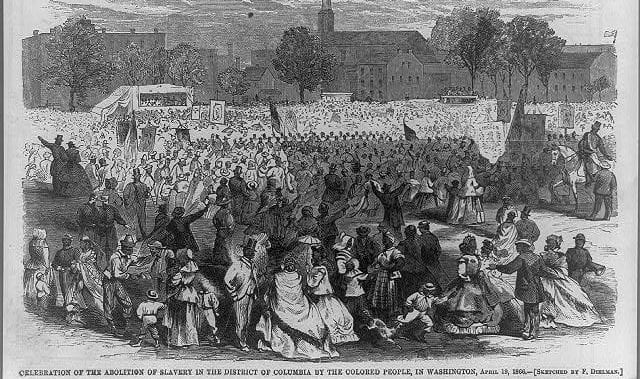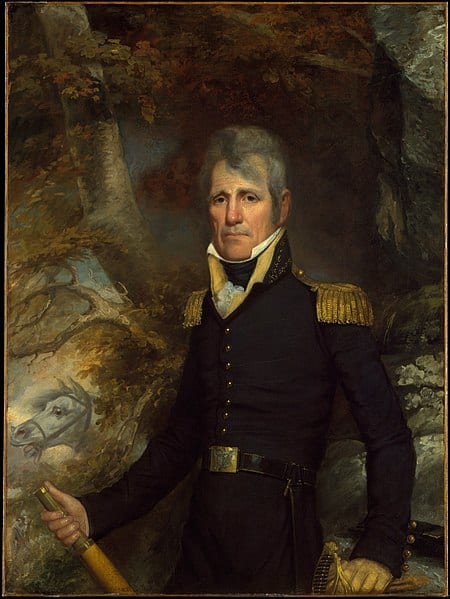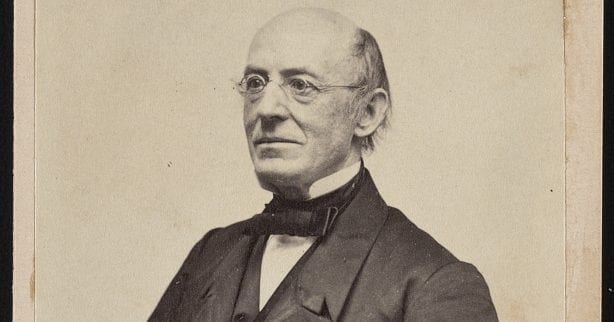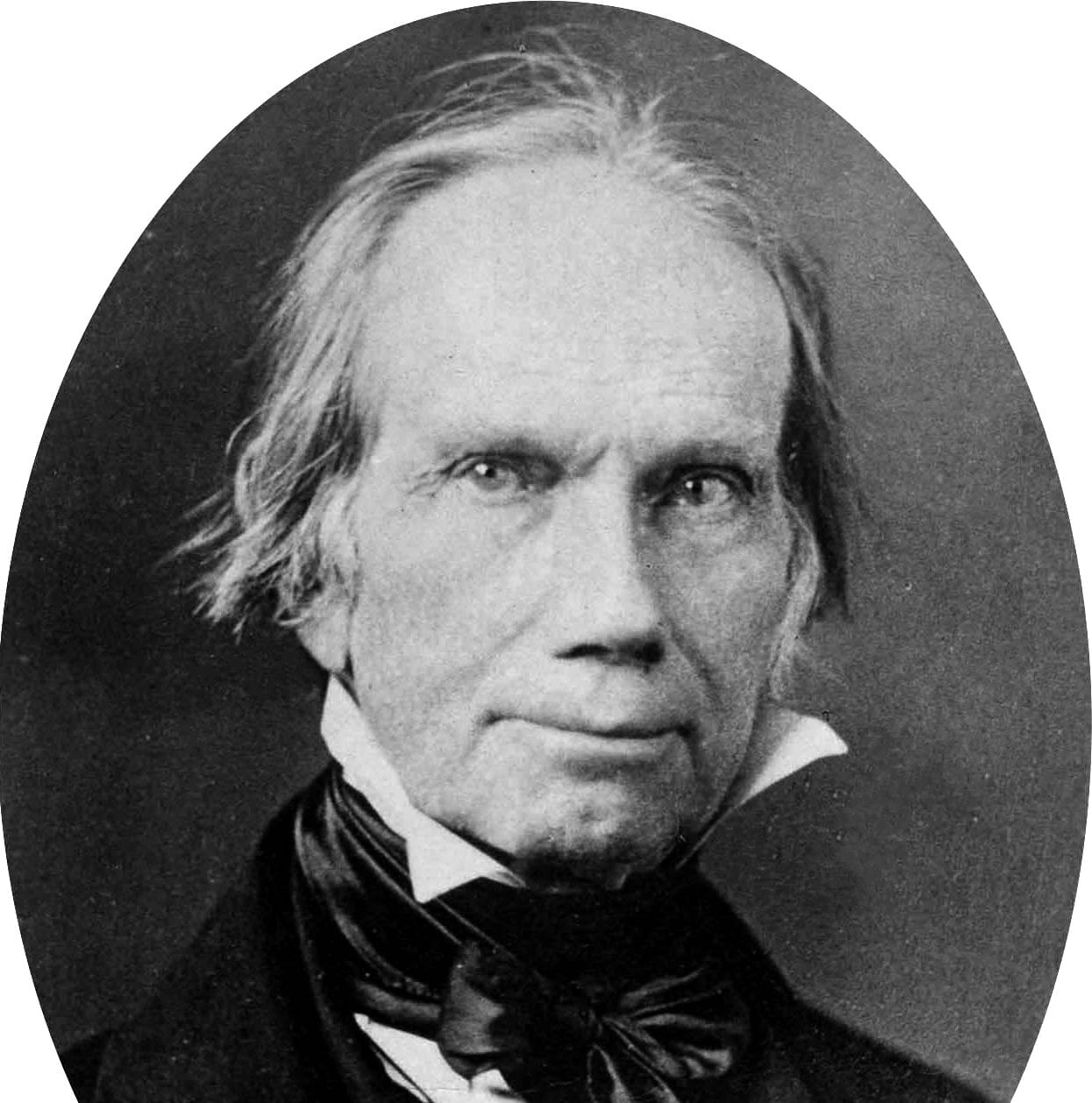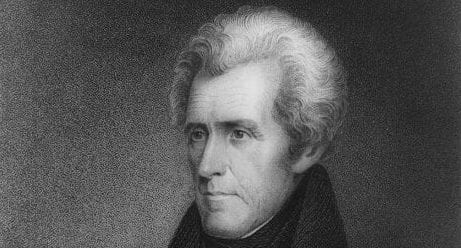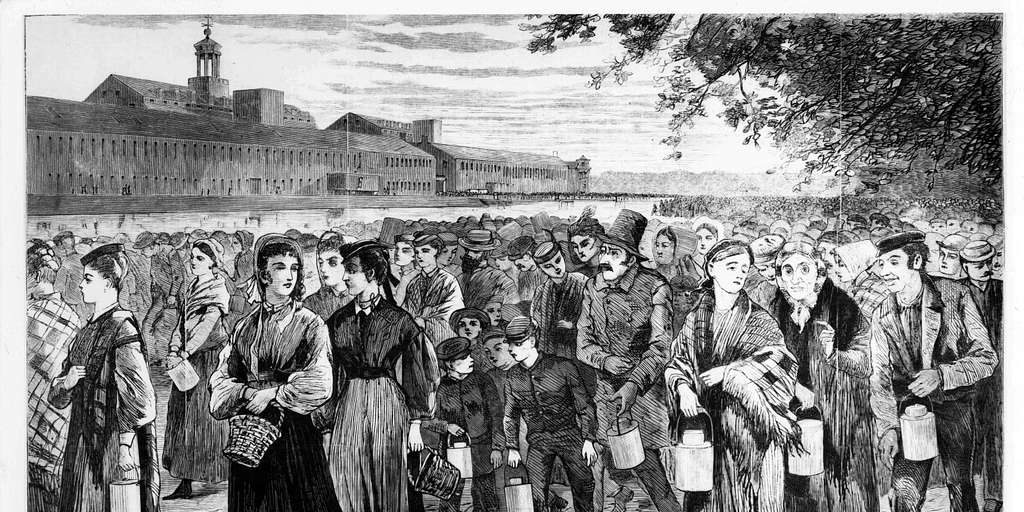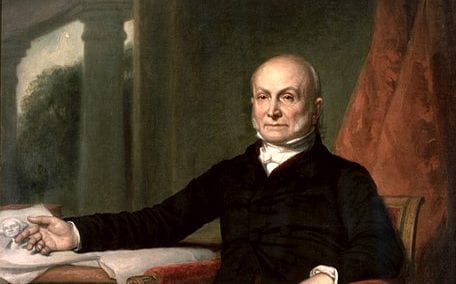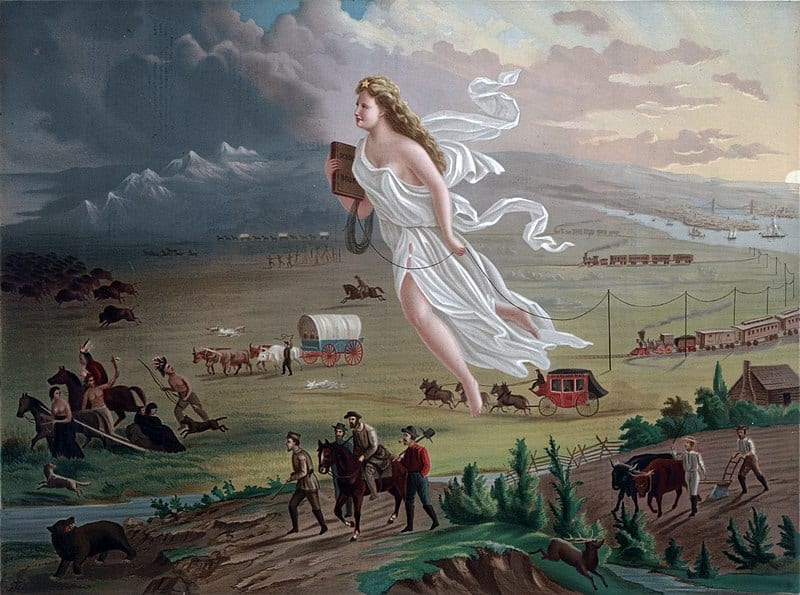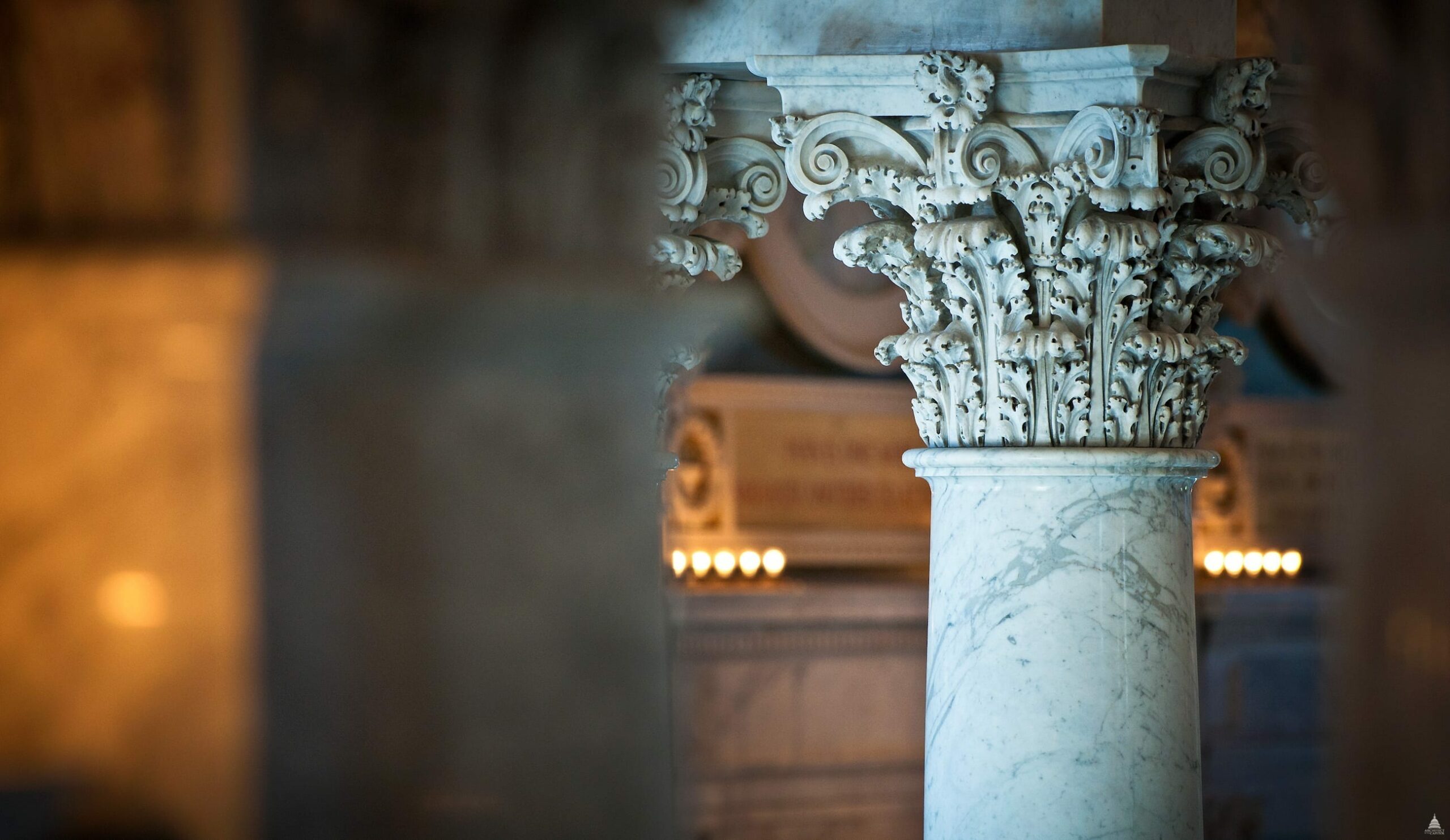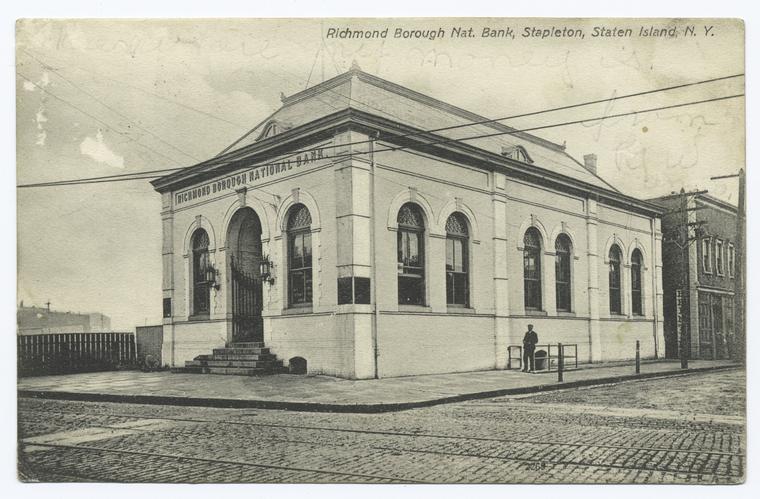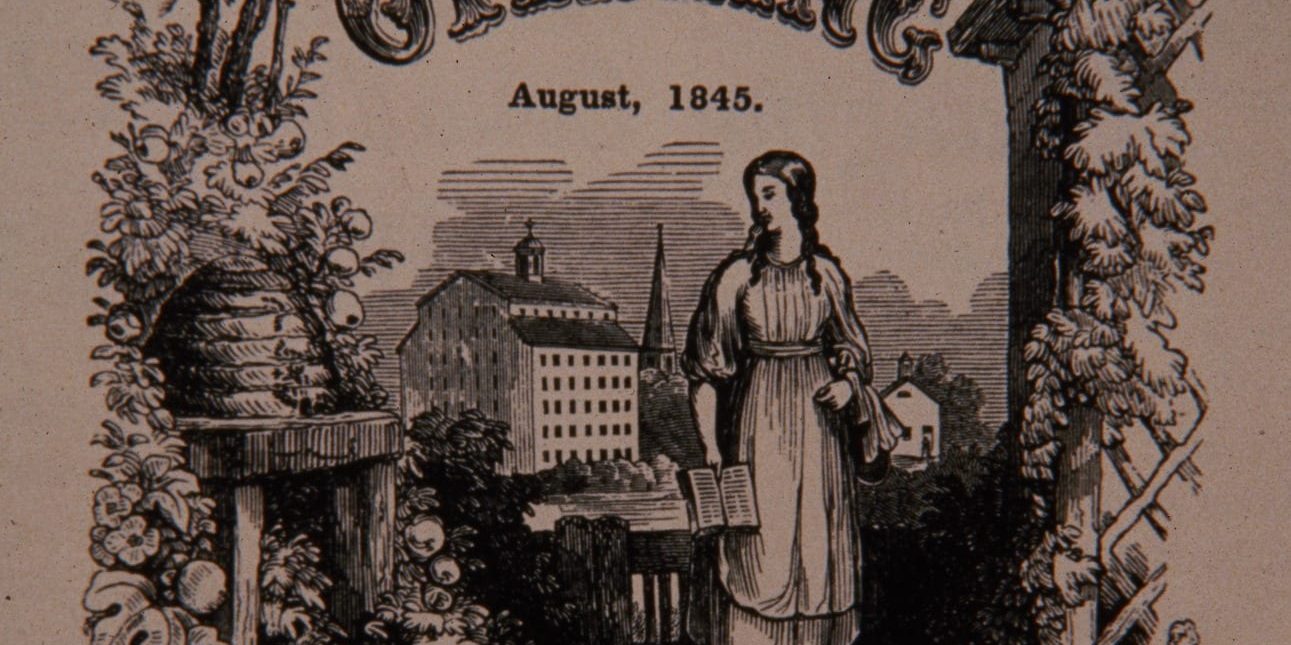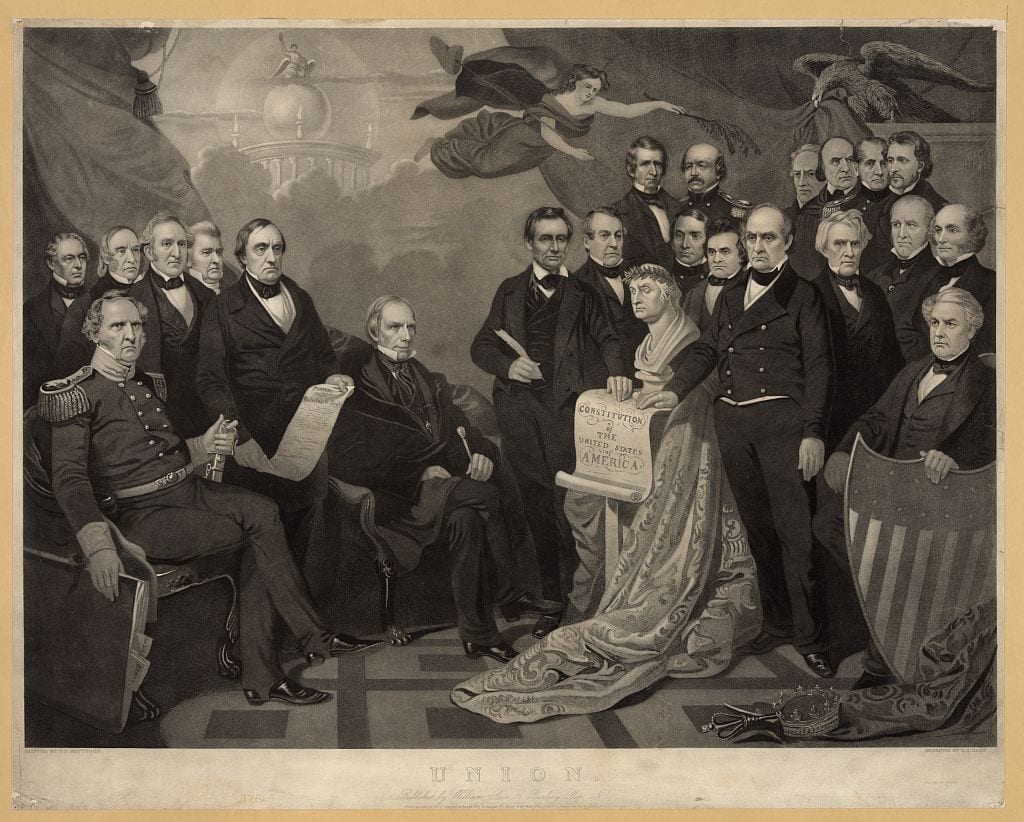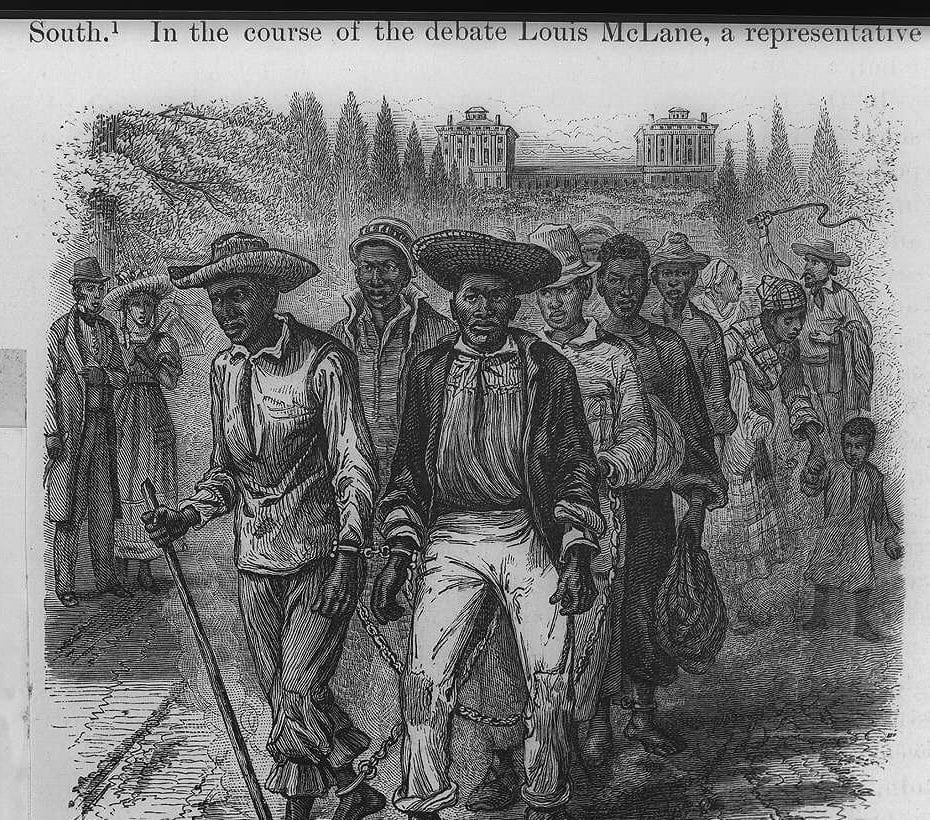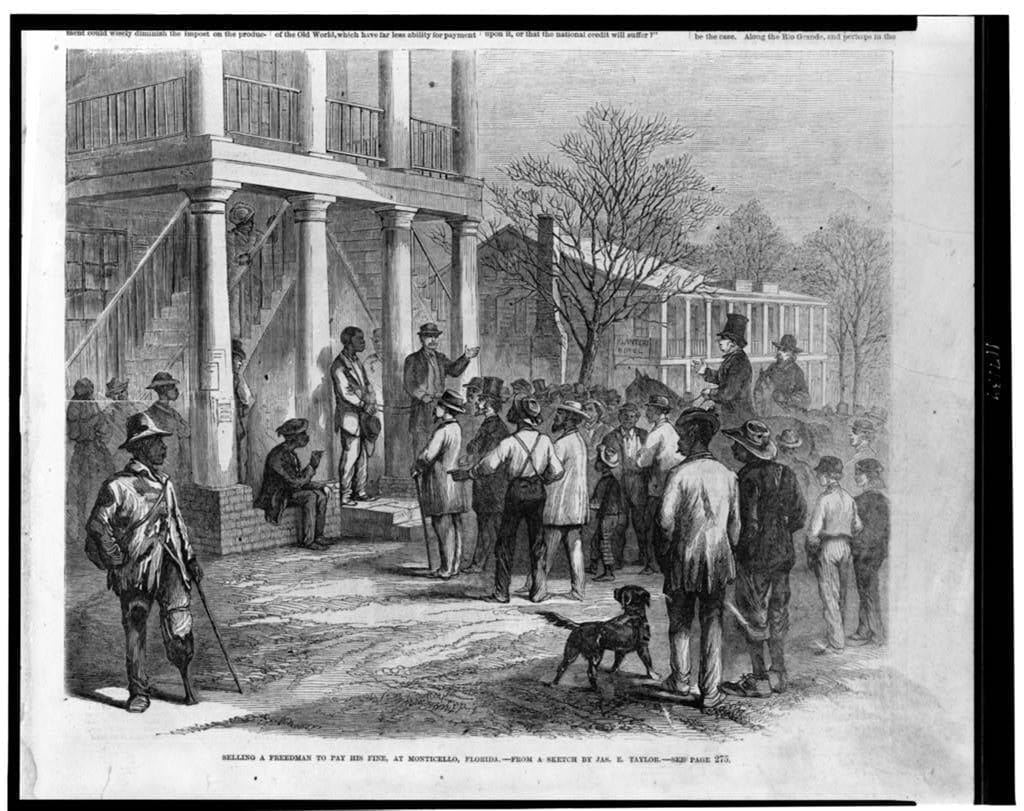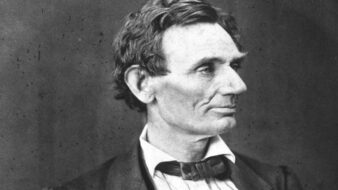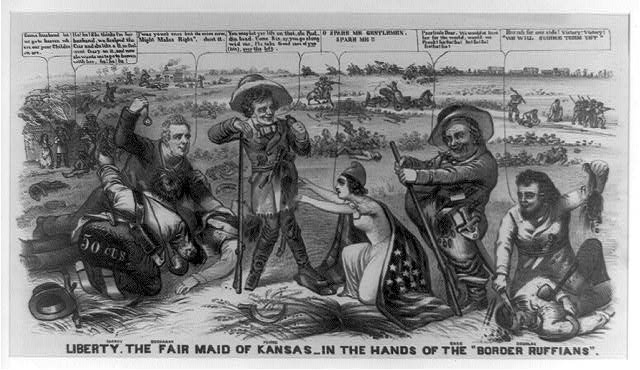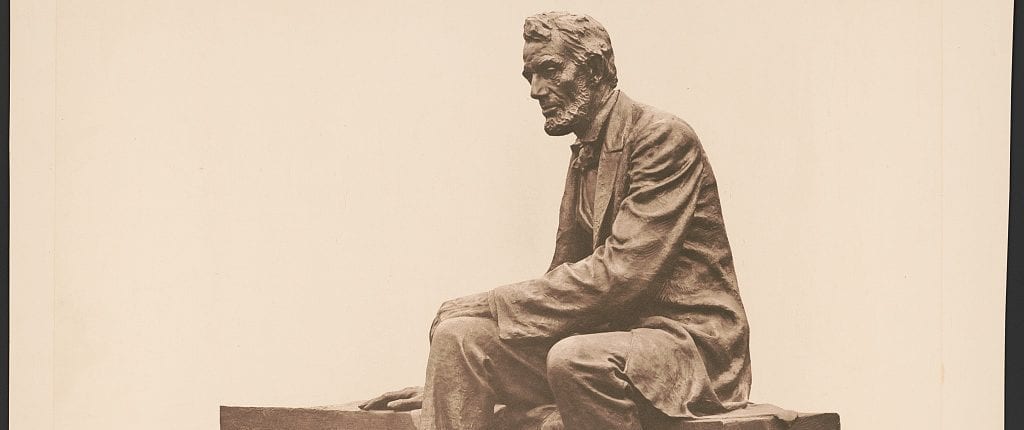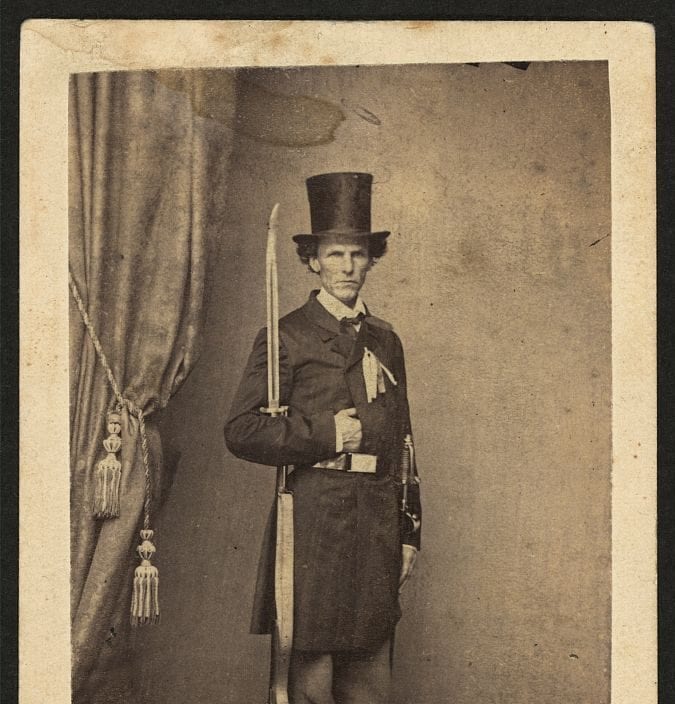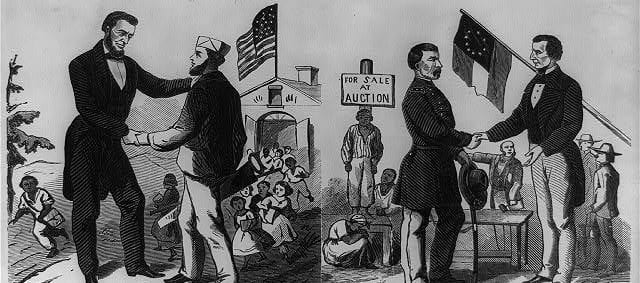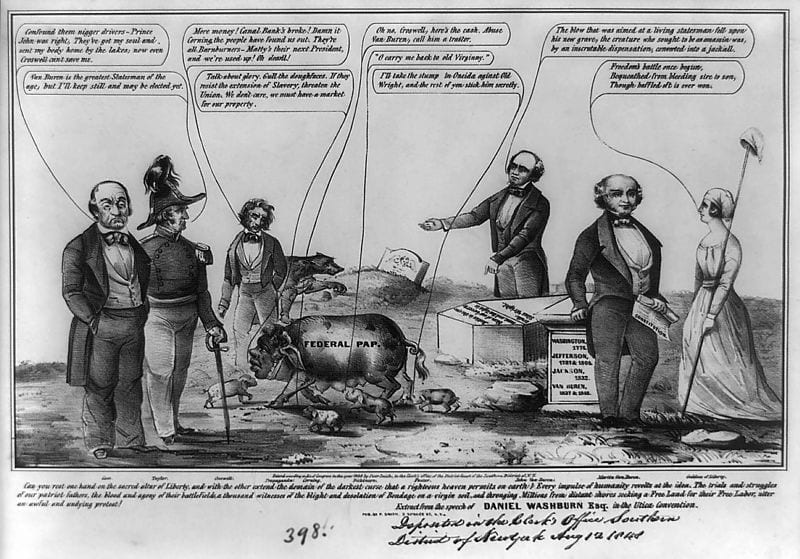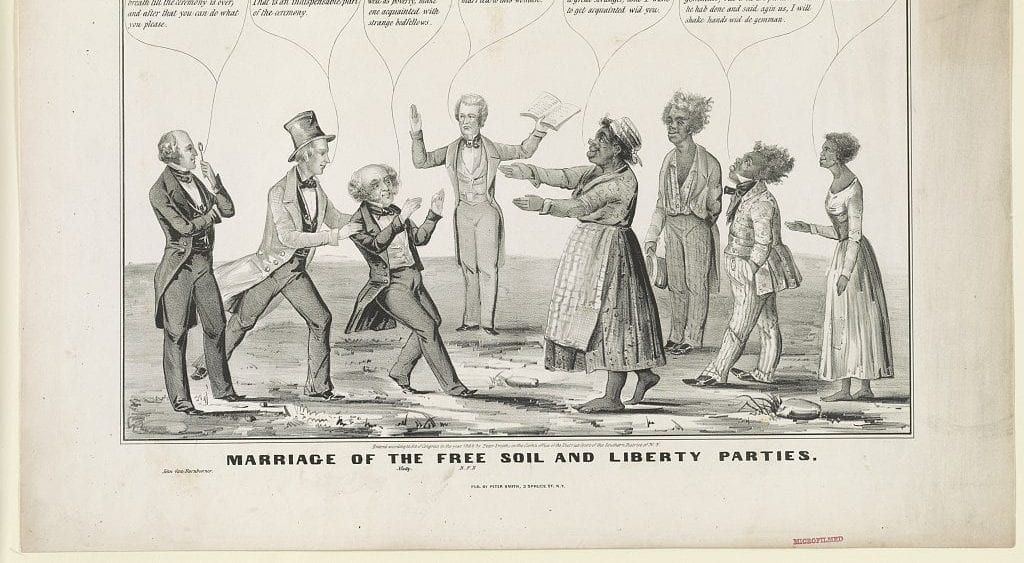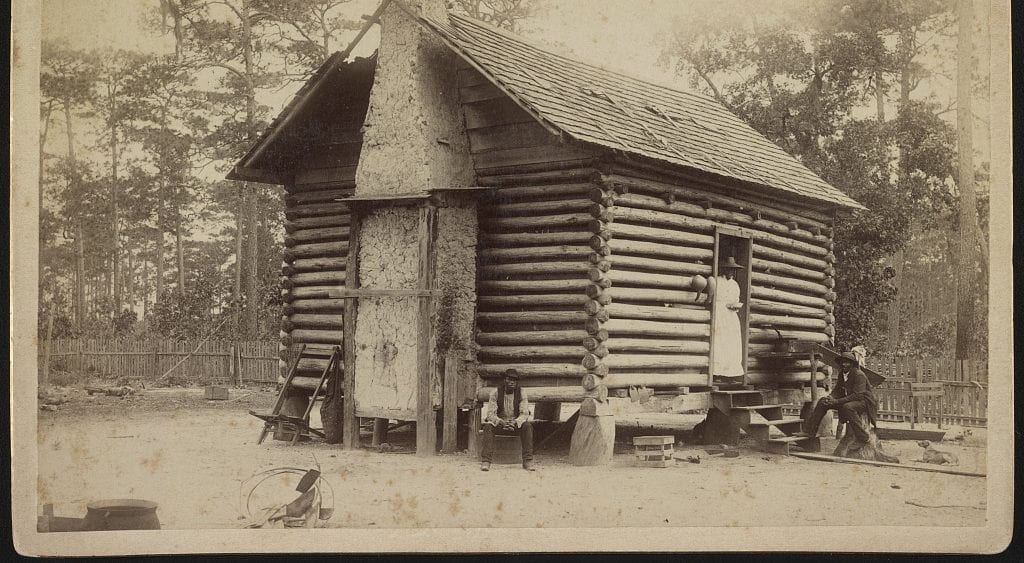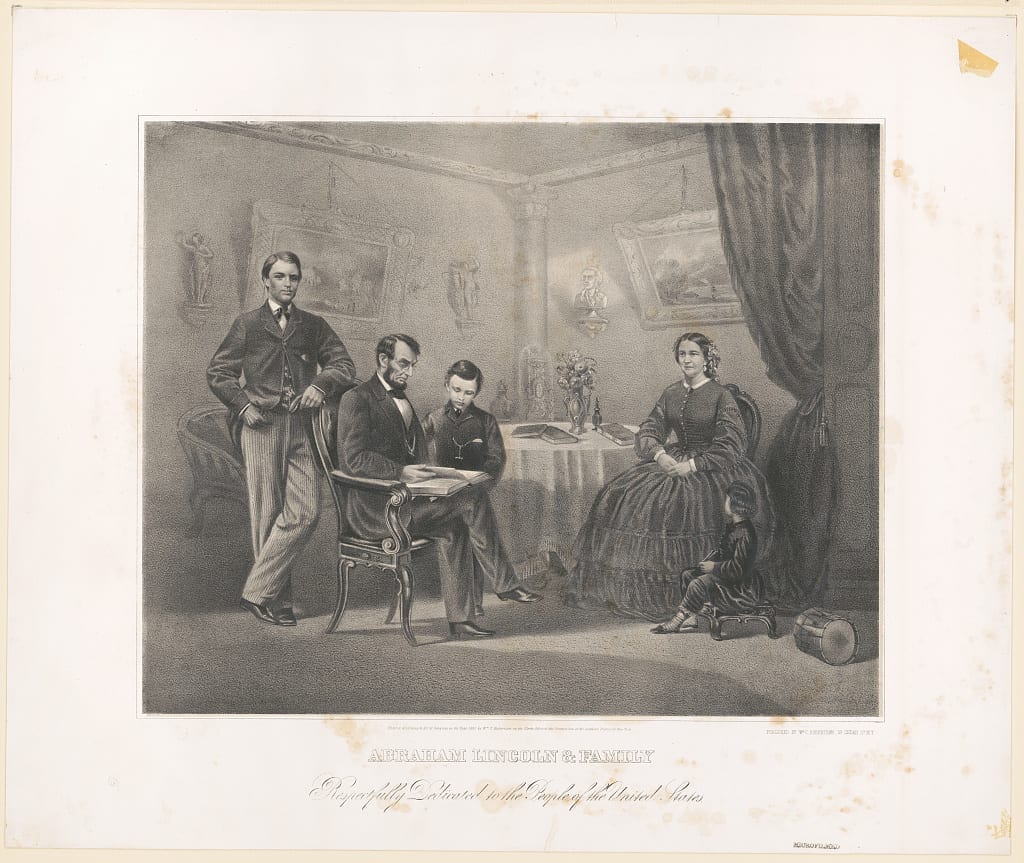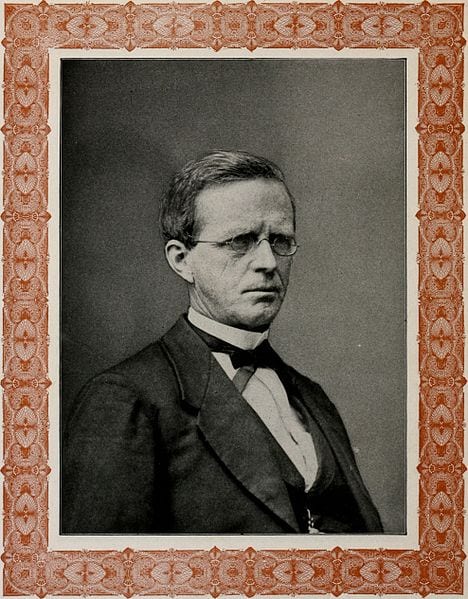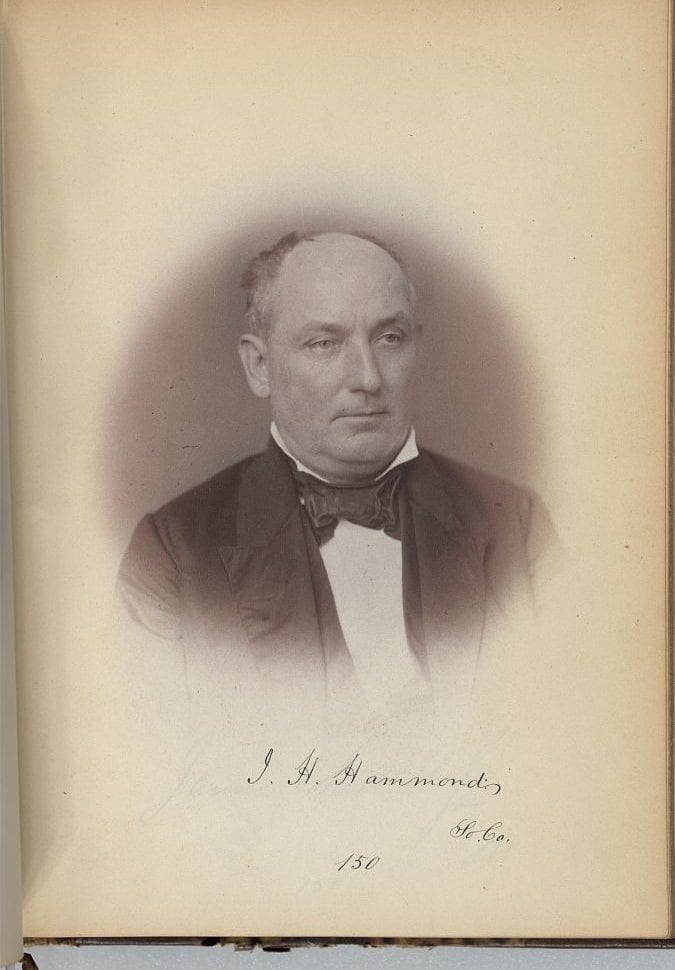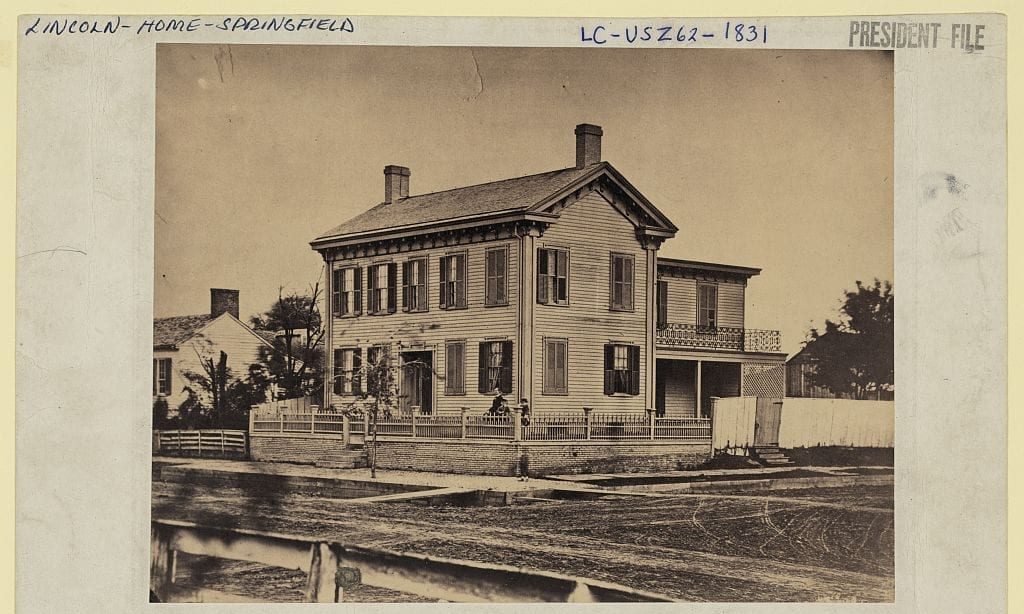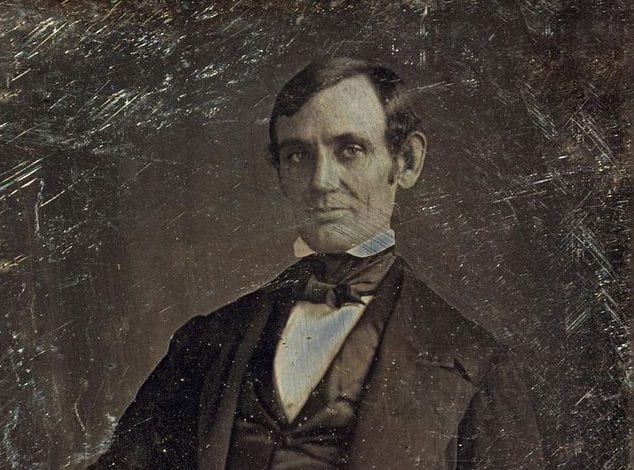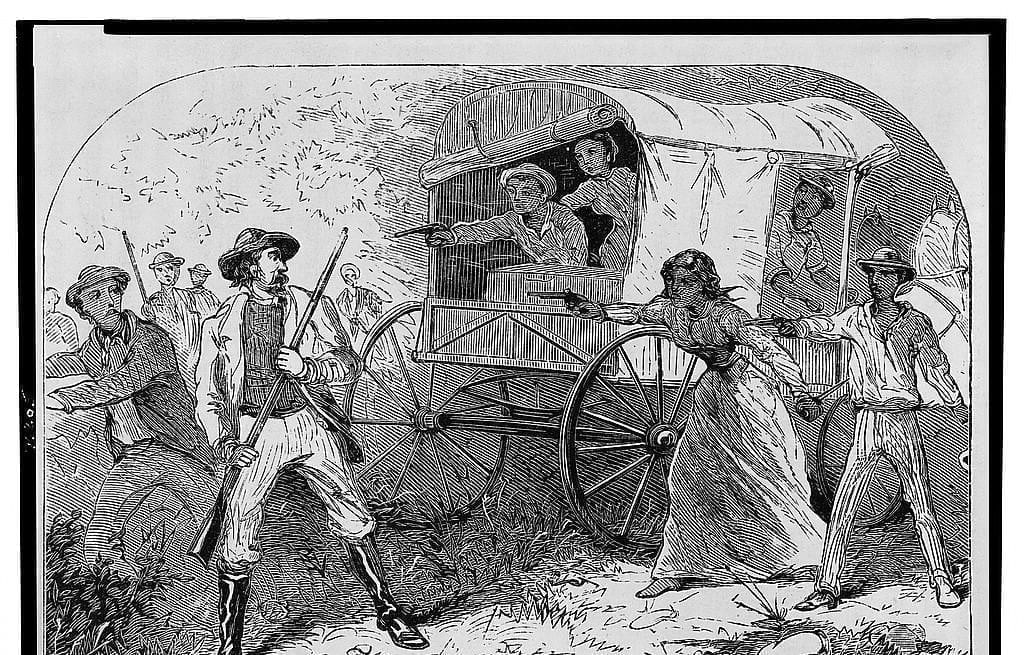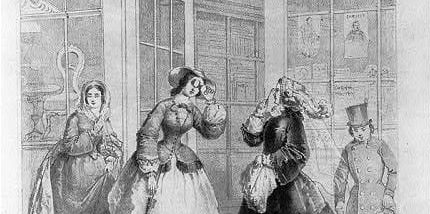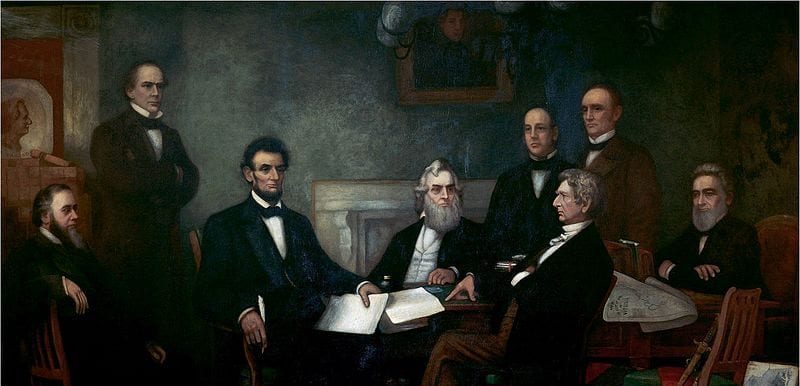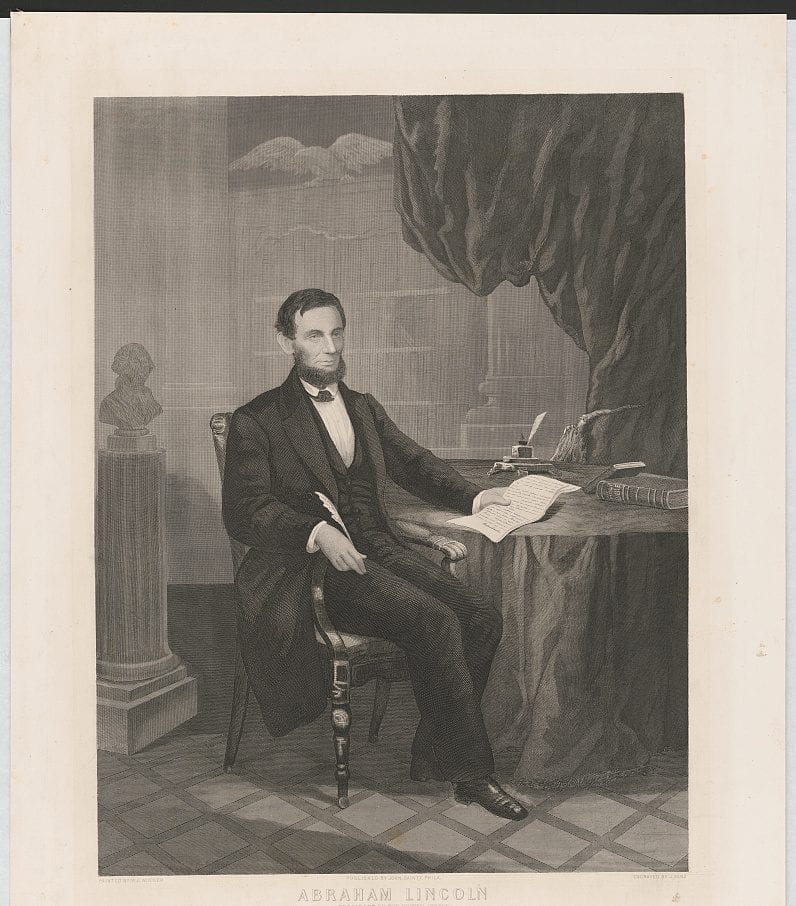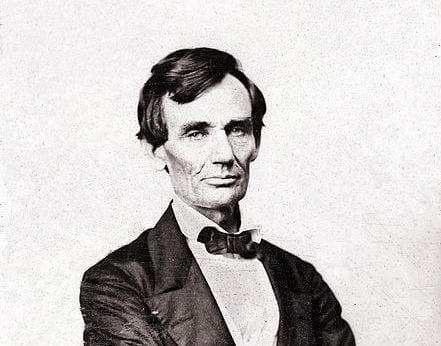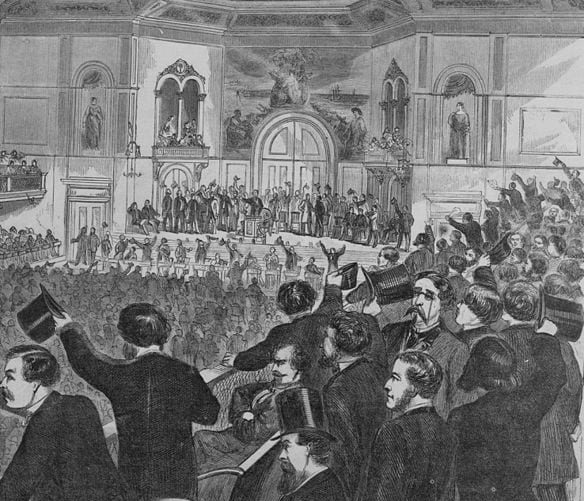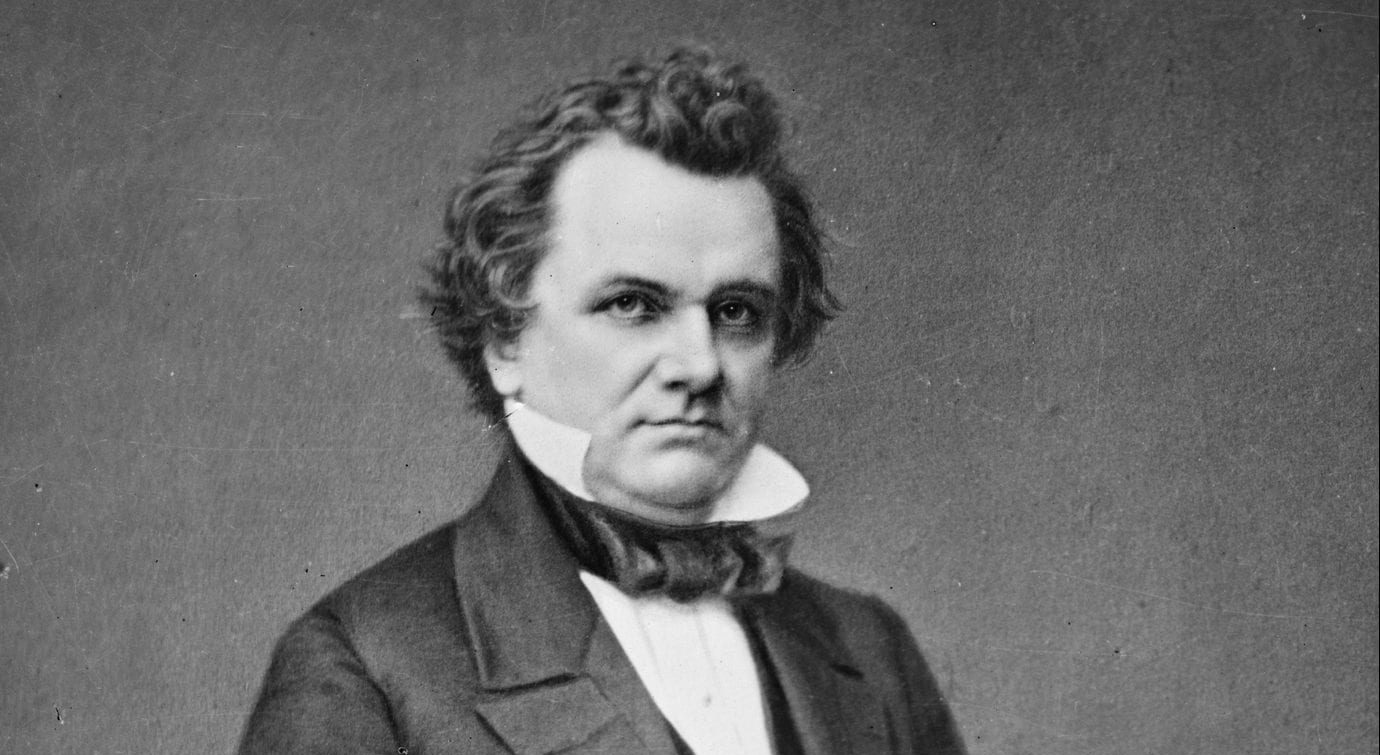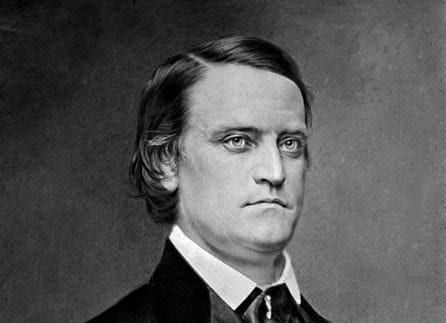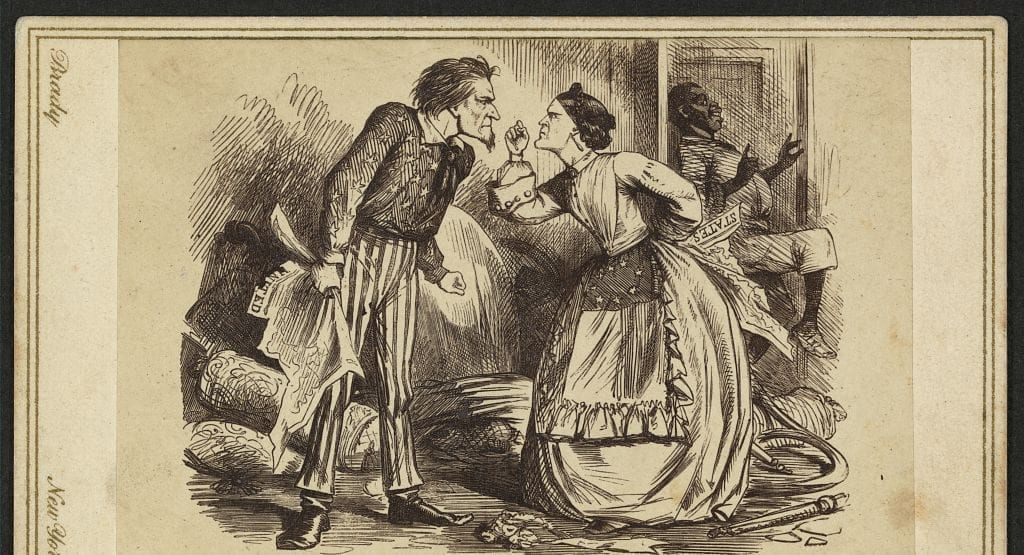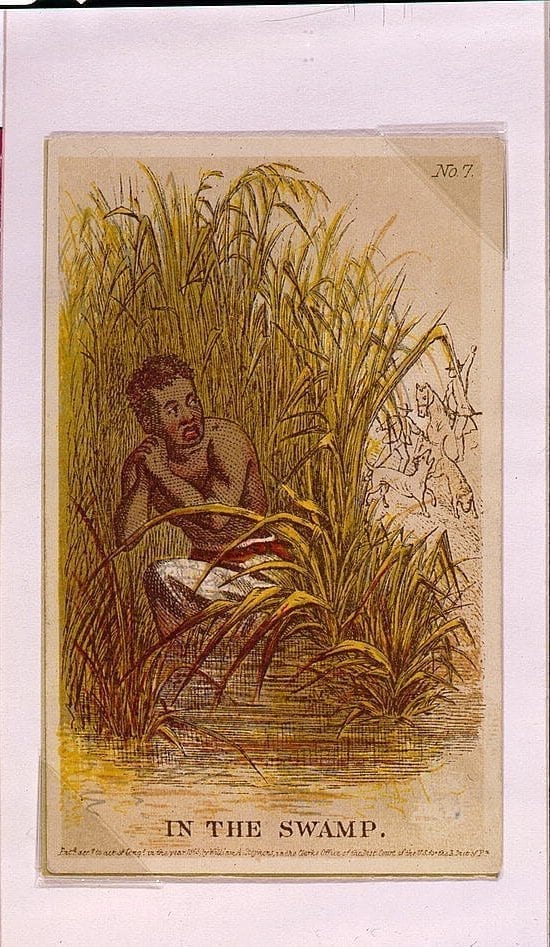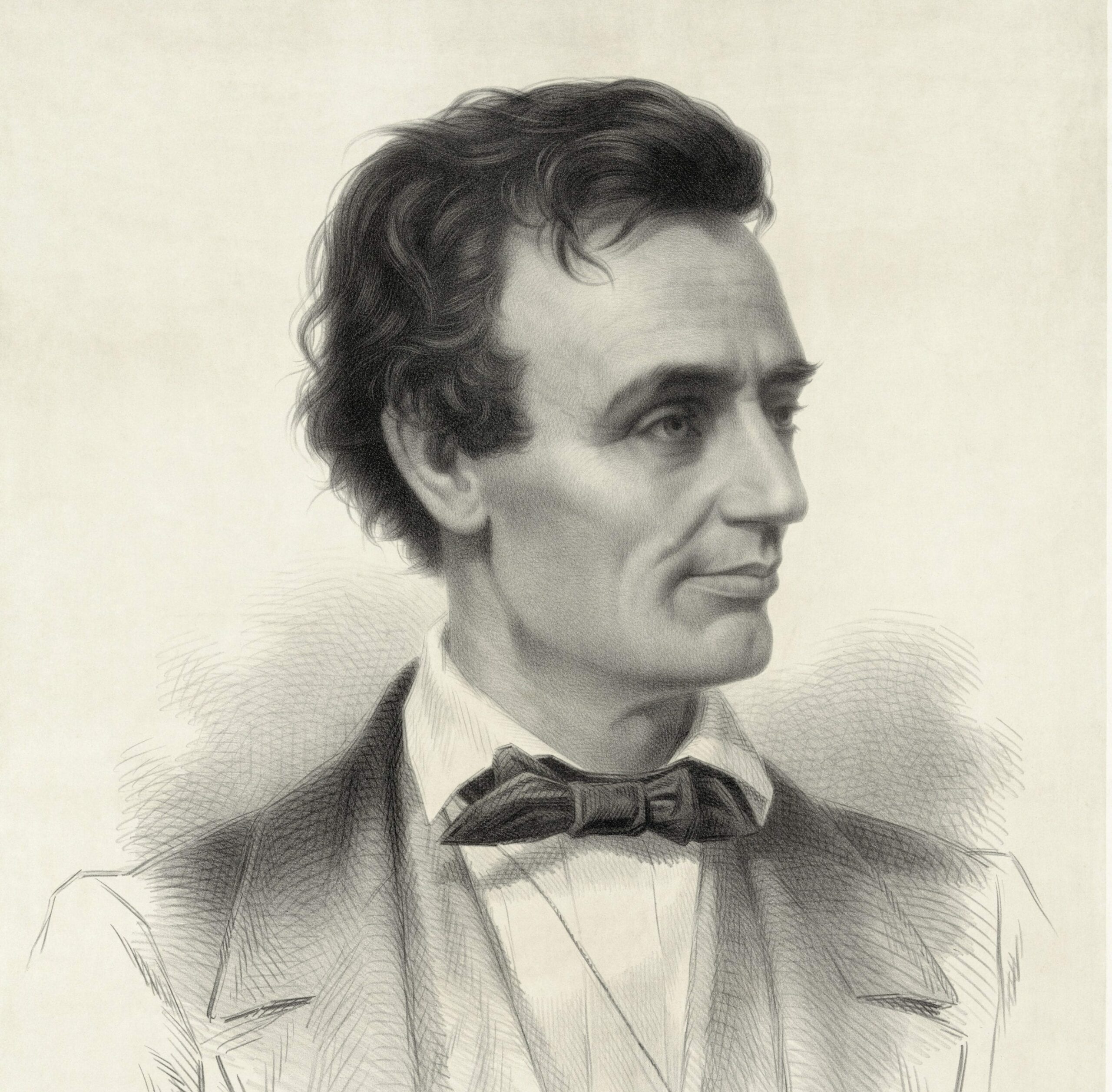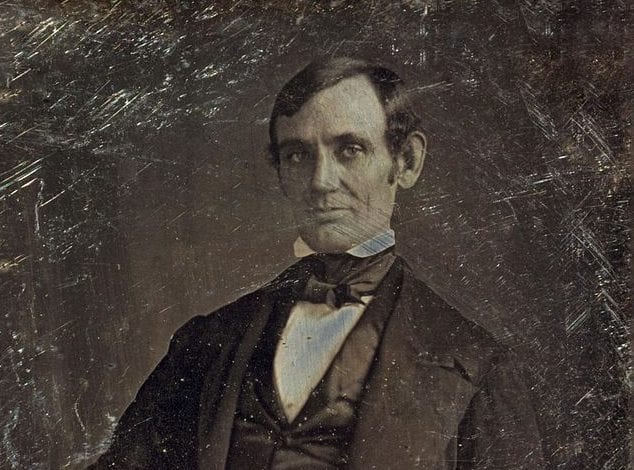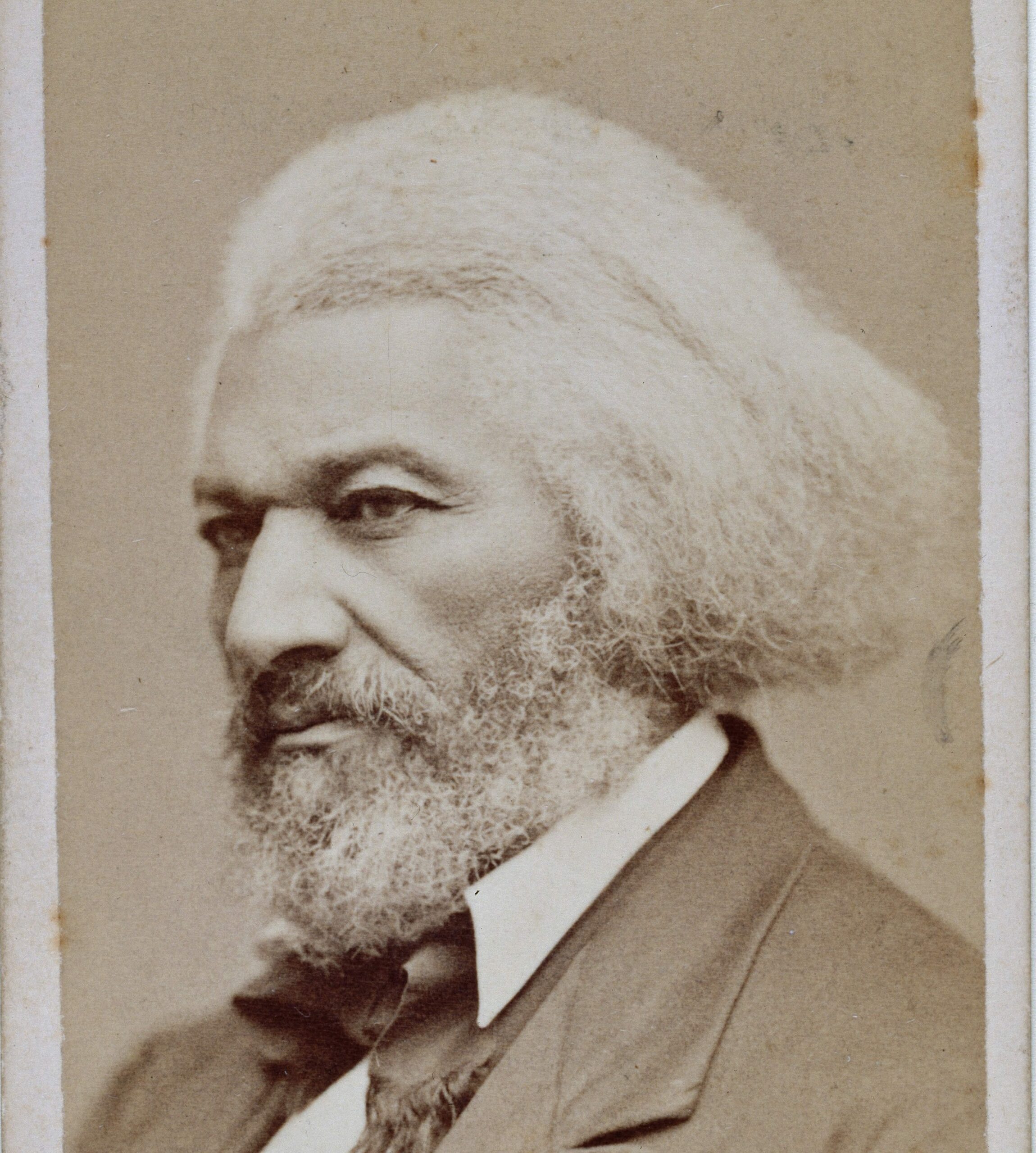
No study questions
No related resources
INTERROGATORIES. Return to Part I
1st. Will you, if elected, vote for and cordially support a bill prohibiting slavery in the Territories of the United States?
2d. Will you vote for and support a bill abolishing slavery in the District of Columbia?
3d. Will you oppose the admission of any slave States which may be formed out of Texas or the Territories?
4th. Will you vote for and advocate the repeal of the Fugitive Slave law passed at the recent session of Congress?
5th. Will you advocate and vote for the election of a Speaker of the House of Representatives who shall be willing to organize the committee of that House so as to give the free States their just influence in the business of legislation?
6th. What are your views, not only as to the constitutional right of Congress to prohibit the slave—trade between the States, but also as to the expediency of exercising that right immediately?
CAMPBELL’S REPLY.
“To the first and second interrogatories, I answer unequivocally in the affirmative.
“To the third interrogatory I reply, that I am opposed to the admission of any more slave States into the Union that may be formed out of Texan or any other Territory.
“To the fourth and fifth interrogatories I unhesitatingly answer in the affirmative.
“To the sixth interrogatory I reply, that so long as the slave States continue to treat slaves as articles of commerce, the Constitution confers power on Congress to pass laws regulating that peculiar COMMERCE, and that the protection of Human Rights imperatively demands the interposition of every constitutional means to prevent this most inhuman and iniquitous traffic.”
T. Campbell
I want to say here that Thompson Campbell was elected to Congress on that platform, as the Democratic candidate in the Galena District, against Martin P. Sweet.
JUDGE DOUGLAS.—”Give me the date of the letter.”
MR. LINCOLN—The time Campbell ran was in 1850. I have not the exact date here. It was some time in 1850 that these interrogatories were put and the answer given. Campbell was elected to Congress, and served out his term. I think a second election came up before he served out his term and he was not re—elected. Whether defeated or not nominated, I do not know. [Mr. Campbell was nominated for re—election by the Democratic party, by acclamation.] At the end of his term his very good friend, Judge Douglas, got him a high office from President Pierce, and sent him off to California. Is not that the fact? Just at the end of his term in congress it appears that our mutual friend Judge Douglas got our mutual friend Campbell a good office, and sent him to California upon it. And not only so, but on the 27th of last month, when Judge Douglas and myself spoke at Freeport in joint discussion, there was his same friend Campbell, come all the way from California, to help the Judge beat me; and there was poor Martin P. Sweet standing on the platform, trying to help poor me to be elected. [Laughter.] That is true of one of Judge Douglas’s friends.
So again, in that same race of 1850, there was a Congressional Convention assembled at Joliet, and it nominated R. S. Molony for Congress, and unanimously adopted the following resolution:
“Resolved, That we are uncompromisingly opposed to the extension of slavery; and while we would not make such opposition a ground of interference with the interests of the States where it exists, yet we moderately but firmly insist that it is the duty of Congress to oppose its extension into Territory now free, by all means compatible with the obligations of the Constitution, and with good faith to our sister States; that these principles were recognized by the Ordinance of 1787, which received the sanction of Thomas Jefferson, who is acknowledged by all to be the great oracle and expounder of our faith.”
Subsequently the same interrogatories were propounded to Dr. Molony which had been addressed to Campbell, as above, with the exception of the 6th, respecting the inter—State slave—trade, to which Dr. Molony, the Democratic nominee for Congress, replied as follows:
“I received the written interrogatories this day, and as you will see by the La Salle Democrat and Ottawa Free Trader, I took at Peru on the 5th and at Ottawa on the 7th, the affirmative side of interrogatories 1st and 2d, and in relation to the admission of any more slave States from free Territory, my position taken at these meetings, as correctly reported in said papers, was emphatically and distinctly opposed to it. In relation to the admission of any more slave States from Texas, whether I shall go against it or not will depend upon the opinion that I may hereafter form of the true meaning and nature of the resolutions of annexation. If, by said resolutions, the honor and good faith of the nation is pledged to admit more slave States from Texas when she (Texas) may apply for the admission of such State, then I should, if in Congress, vote for their admission. But if not so PLEDGED and bound by sacred contract, then a bill for the admission of more slave States from Texas would never receive my vote.
“To your fourth interrogatory I answer most decidedly in the affirmative, and for reasons set forth in my reported remarks at Ottawa last Monday.
“To your fifth interrogatory I also reply in the affirmative most cordially, and that I will use my utmost exertions to secure the nomination and election of a man who will accomplish the objects of said interrogatories. I most cordially approve of the resolutions adopted at the union meeting held at Princeton on the 27th September ult.”
Yours, etc.,
R. S. Molony
All I have to say in regard to Dr. Molony is, that he was the regularly nominated Democratic candidate for Congress in his district—was elected at that time, at the end of his term was appointed to a land—office at Danville. (I never heard any thing of Judge Douglas’s instrumentality in this.) He held this office a considerable time, and when we were at Freeport the other day, there were handbills scattered about notifying the public that after our debate was over, R. S. Molony would make a Democratic speech in favor of Judge Douglas. That is all I know of my own personal knowledge. It is added here to this resolution, and truly I believe, that—
“Among those who participated in the Joliet Convention, and who supported its nominee, with his platform as laid down in the resolution of the Convention and in his reply as above given, we call at random the following names, all of which are recognized at this day as leading Democrats:
“Cook County—E. B. Williams, Charles McDonell, Arno Voss, Thomas Hoyne, Isaac Cook.”
I reckon we ought to except Cook. [Laughter.]
“F. C. Sherman.”
“Will—Joel A. Matteson, S. W. Bowen.”
“Kane—B. F. Hall, G. W. Renwick, A. M. Herrington, Elijah Wilcox.”
“McHenry—W. M. Jackson, Enos W. Smith, Neil Donnelly.”
“La Salle—John Hise, William Reddick.”
William Reddick! another one of Judge Douglas’s friends that stood on the stand with him at Ottawa, at the time the Judge says my knees trembled so that I had to be carried away. [Laughter.] The names are all here:
“DuPage—Nathan Allen.”
“DeKalb—Z. B. Mayo.”
Here is another set of resolutions which I think are apposite to the matter in hand.
On the 28th of February of the same year, a Democrat District Convention was held at Naperville, to nominate a candidate for Circuit Judge. Among the delegates were Bowen and Kelley, of Will; Captain Napier, H. H. Cody, Nathan Allen, of DuPage; W. M. Jackson, J. M. Strode, P. W. Platt and Enos W. Smith, of McHenry; J. Horsman and others, of Winnebago. Col. Strode presided over the Convention. The following resolutions were unanimously adopted—the first on motion of P. W. Platt, the second on motion of William M. Jackson:
“Resolved, That this Convention is in favor of the Wilmot Proviso, both in Principle and Practice, and that we know of no good reason why any person should oppose the largest latitude in Free Soil, Free Territory and Free Speech.
“Resolved, That in the opinion of this Convention, the time has arrived when all men should be free, whites as well as others.”
JUDGE DOUGLAS—”What is the date of those resolutions?”
MR. LINCOLN—I understand it was in 1850, but I do not know it. I do not state a thing and say I know it, when I do not. But I have the highest belief that this is so. I know of no way to arrive at the conclusion that there is an error in it. I mean to put a case no stronger than the truth will allow. But what I was going to comment upon is an extract from a newspaper in DeKalb county, and it strikes me as being rather singular, I confess, under the circumstances. There is a Judge Mayo in that county, who is a candidate for the Legislature, for the purpose, if he secures his election, of helping to re—elect Judge Douglas. He is the editor of a newspaper [DeKalb County Sentinel], and in that paper I find the extract I am going to read. It is part of an editorial article in which he was electioneering as fiercely as he could for Judge Douglas and against me. It was a curious thing, I think, to be in such a paper. I will agree to that, and the Judge may make the most of it:
“Our education has been such, that we have ever been rather in favor of the equality of the blacks; that is, that they should enjoy all the privileges of the whites where they reside. We are aware that this is not a very popular doctrine. We have had many a confab with some who are now strong ‘Republicans,’ we taking the broad ground of equality and they the opposite ground.
“We were brought up in a State where blacks were voters, and we do not know of any inconvenience resulting from it, though perhaps it would not work as well where the blacks are more numerous. We have no doubt of the right of the whites to guard against such an evil, if it is one. Our opinion is that it would be best for all concerned to have the colored population in a State by themselves [in this I agree with him]; but if within the jurisdiction of the United States, we say by all means they should have the right to have their Senators and Representatives in Congress, and to vote for President. With us ‘worth makes the man, and want of it the fellow.’ We have seen many a ‘nigger’ that we thought more of than some white men.”
That is one of Judge Douglas’s friends. Now I do not want to leave myself in an attitude where I can be misrepresented, so I will say I do not think the Judge is responsible for this article; but he is quite as responsible for it as I would be if one of my friends had said it. I think that is fair enough. [Cheers.]
I have here also a set of resolutions passed by a Democratic State Convention in Judge Douglas’s own good old State of Vermont, that I think ought to be good for him too:
“Resolved, That liberty is a right inherent and inalienable in man, and that herein all men are equal.
“Resolved, That we claim no authority in the Federal Government to abolish slavery in the several States but we do claim for it Constitutional power perpetually to prohibit the introduction of slavery into territory now free, and abolish it wherever, under the jurisdiction of Congress it exists.
“Resolved, That this power ought immediately to be exercised in prohibiting the introduction and existence of slavery in New Mexico and California, in abolishing slavery and the slave—trade in the District of Columbia, on the high seas, and wherever else, under the Constitution, it can be reached.
“Resolved, That no more slave States should be admitted into the Federal Union.
“Resolved, That the Government ought to return to its ancient policy, not to extend, nationalize or encourage, but to limit, localize and discourage slavery.”
At Freeport I answered several interrogatories that had been propounded to me by Judge Douglas at the Ottawa meeting. The Judge has yet not seen fit to find any fault with the position that I took in regard to those seven interrogatories, which were certainly broad enough, in all conscience, to cover the entire ground. In my answers, which have been printed, and all have had the opportunity of seeing, I take the ground that those who elect me must expect that I will do nothing which will not be in accordance with those answers. I have some right to assert that Judge Douglas has no fault to find with them. But he chooses to still try to thrust me upon different ground without paying any attention to my answers, the obtaining of which from me cost him so much trouble and concern. At the same time, I propounded four interrogatories to him, claiming it as a right that he should answer as many interrogatories for me as I did for him, and I would reserve myself for a future installment when I got them ready. The Judge in answering me upon that occasion, put in what I suppose he intends as answers to all four of my interrogatories. The first one of these interrogatories I have before me, and it is in these words:
“Question 1. If the people of Kansas shall, by means entirely unobjectionable in all other respects, adopt a State Constitution, and ask admission into the Union under it, before they have the requisite number of inhabitants according to the English bill—some ninety—three thousand — will you vote to admit them?”
As I read the Judge’s answer in the newspaper, and as I remember it as pronounced at the time, he does not give any answer which is equivalent to yes or no—I will or I wont. He answers at very considerable length, rather quarreling with me for asking the question, and insisting that Judge Trumbull had done something that I ought to say something about; and finally getting out such statements as induce me to infer that he means to be understood he will, in that supposed case, vote for the admission of Kansas. I only bring this forward now for the purpose of saying that if he chooses to put a different construction upon his answer he may do it. But if he does not, I shall from this time forward assume that he will vote for the admission of Kansas in disregard of the English bill. He has the right to remove any misunderstanding I may have. I only mention it now that I may hereafter assume this to be the true construction of his answer, if he does not now choose to correct me.
The second interrogatory that I propounded to him, was this:
“Question 2. Can the people of a United States Territory, in any lawful way, against the wish of any citizen of the United States, exclude slavery from its limits prior to the formation of a State Constitution?”
To this Judge Douglas answered that they can lawfully exclude slavery from the Territory prior to the formation of a Constitution. He goes on to tell us how it can be done. As I understand him, he holds that it can be done by the Territorial Legislature refusing to make any enactments for the protection of slavery in the Territory, and especially by adopting unfriendly legislation to it. For the sake of clearness I state it again; that they can exclude slavery from the Territory, 1st, by withholding what he assumes to be an indispensable assistance to it in the way of legislation; and, 2d, by unfriendly legislation. If I rightly understand him, I wish to ask your attention for a while to his position.
In the first place, the Supreme Court of the United States has decided that any Congressional prohibition of slavery in the Territories is unconstitutional—that they have reached this proposition as a conclusion from their former proposition, that the Constitution of the United States expressly recognizes property in slaves, and from that other Constitutional provision, that no person shall be deprived of property without due process of law. Hence they reach the conclusion that as the Constitution of the United States expressly recognizes property in slaves, and prohibits any person from being deprived of property without due process of law, to pass an act of Congress by which a man who owned a slave on one side of a line would be deprived of him if he took him on the other side, is depriving him of that property without due process of law. That I understand to be the decision of the Supreme Court. I understand also that Judge Douglas adheres most firmly to that decision; and the difficulty is, how is it possible for any power to exclude slavery from the Territory unless in violation of that decision? That is the difficulty.
In the Senate of the United States, in 1856, Judge Trumbull, in a speech, substantially, if not directly, put the same interrogatory to Judge Douglas, as to whether the people of a Territory had the lawful power to exclude slavery prior to the formation of a Constitution? Judge Douglas then answered at considerable length, and his answer will be found in the Congressional Globe, under date of June 9th, 1856. The Judge said that whether the people could exclude slavery prior to the formation of a Constitution or not was a question to be decided by the Supreme Court. He put that proposition, as will be seen by the Congressional Globe, in a variety of forms, all running to the same thing in substance—that it was a question for the Supreme Court. I maintain that when he says, after the Supreme Court have decided the question, that the people may yet exclude slavery by any means whatever, he does virtually say, that it is not a question for the Supreme Court. He shifts his ground. I appeal to you whether he did not say it was a question for the Supreme Court? Has not the Supreme Court decided that question? When he now says the people may exclude slavery, does he not make it a question for the people? Does he not virtually shift his ground and say that it is not a question for the court, but for the people? This is a very simple proposition,- a very plain and naked one. It seems to me that there is no difficulty in deciding it. In a variety of ways he said that it was a question for the Supreme Court. He did not stop then to tell us that whatever the Supreme Court decides, the people can by withholding necessary “police regulations” keep slavery out. He did not make any such answer. I submit to you now, whether the new state of the case has not induced the Judge to sheer away from his original ground. Would not this be the impression of every fair—minded man?
I hold that the proposition that slavery cannot enter a new country without police regulations is historically false. It is not true at all. I hold that the history of this country shows that the institution of slavery was originally planted upon this continent without these “police regulations” which the Judge now thinks necessary for the actual establishment of it. Not only so, but is there not another fact—how came this Dred Scott decision to be made? It was made upon the case of a negro being taken and actually held in slavery in Minnesota Territory, claiming his freedom because the act of Congress prohibited his being so held there. Will the Judge pretend that Dred Scott was not held there without police regulations? There is at least one matter of record as to his having been held in slavery in the Territory, not only without police regulations, but in the teeth of Congressional legislation supposed to be valid at the time. This shows that there is vigor enough in slavery to plant itself in a new country even against unfriendly legislation. It takes not only law but the enforcement of law to keep it out. That is the history of this country upon the subject.
I wish to ask one other question. It being understood that the Constitution of the United States guaranties property in slaves in the Territories, if there is any infringement of the right of that property, would not the United States Courts, organized for the government of the Territory, apply such remedy as might be necessary in that case? It is a maxim held by the courts, that there is no wrong without its remedy; and the courts have a remedy for whatever is acknowledged and treated as a wrong.
Again: I will ask you, my friends, if you were elected members of the Legislature, what would be the first thing you would have to do before entering upon your duties? Swear to support the Constitution of the United States. Suppose you believe, as Judge Douglas does, that the Constitution of the United States guaranties to your neighbor the right to hold slaves in that Territory — that they are his property—how can you clear your oaths unless you give him such legislation as is necessary to enable him to enjoy that property? What do you understand by supporting the Constitution of a State, or of the United States? Is it not to give such Constitutional helps to the rights established by that Constitution as may be practically needed? Can you, if you swear to support the Constitution, and believe that the Constitution establishes a right, clear your oath, without giving it support? Do you support the Constitution if, knowing or believing there is a right established under it which needs specific legislation, you withhold that legislation? Do you not violate and disregard your oath? I can conceive of nothing plainer in the world. There can be nothing in the words “support the Constitution,” if you may run counter to it by refusing support to any right established under the Constitution. And what I say here will hold with still more force against the Judge’s doctrine of “unfriendly legislation.” How could you, having sworn to support the Constitution and believing it guarantied the right to hold slaves in the Territories, assist in legislation intended to defeat that right? That would be violating your own view of the Constitution. Not only so, but if you were to do so, how long would it take the courts to hold your votes unconstitutional and void? Not a moment.
Lastly I would ask—is not Congress, itself, under obligation to give legislative support to any right that is established under the United States Constitution? I repeat the question—is not Congress, itself, bound to give legislative support to any right that is established in the United States Constitution? A member of Congress swears to support the Constitution of the United States, and if he sees a right established by that Constitution which needs specific legislative protection, can he clear his oath without giving that protection? Let me ask you why many of us who are opposed to slavery upon principle, give our acquiescence to a Fugitive Slave law? Why do we hold ourselves under obligations to pass such a law, and abide by it when it is passed? Because the Constitution makes provision that the owners of slaves shall have the right to reclaim them. It gives the right to reclaim slaves, and that right is, as Judge Douglas says, a barren right, unless there is legislation that will enforce it.
The mere declaration, “No person held to service or labor in one State under the laws thereof, escaping into another, shall in consequence of any law or regulation therein be discharged from such service or labor, but shall be delivered up on claim of the party to whom such service or labor may be due,” is powerless without specific legislation to enforce it. Now, on what ground would a member of Congress who is opposed to slavery in the abstract, vote for a Fugitive law, as I would deem it my duty to do? Because there is a Constitutional right which needs legislation to enforce it. And although it is distasteful to me, I have sworn to support the Constitution, and having so sworn, I cannot conceive that I do support it if I withhold from that right any necessary legislation to make it practical. And if that is true in regard to a Fugitive Slave law, is the right to have fugitive slaves reclaimed any better fixed in the Constitution than the right to hold slaves in the Territories? For this decision is a just exposition of the Constitution, as Judge Douglas thinks. Is the one right any better than the other? Is there any man who, while a member of Congress, would give support to the one any more than the other? If I wished to refuse to give legislative support to slave property in the Territories, if a member of Congress, I could not do it, holding the view that the Constitution establishes that right. If I did it at all, it would be because I deny that this decision properly construes the Constitution. But if I acknowledge, with Judge Douglas, that this decision properly construes the Constitution, I cannot conceive that I would be less than a perjured man if I should refuse in Congress to give such protection to that property as in its nature it needed.
At the end of what I have said here I propose to give the Judge my fifth interrogatory, which he may take and answer at his leisure. My fifth interrogatory is this:
If the slaveholding citizens of a United States Territory should need and demand Congressional legislation for the protection of their slave property in such Territory, would you, as a member of Congress, vote for or against such legislation?
JUDGE DOUGLAS—”Will you repeat that? I want to answer that question.”
MR. LINCOLN—If the slaveholding citizens of a United States Territory should need and demand Congressional legislation for the protection of their slave property in such Territory, would you, as a member of Congress, vote for or against such legislation?
I am aware that in some of the speeches Judge Douglas has made, he has spoken as if he did not know or think that the Supreme Court had decided that a Territorial Legislature cannot exclude slavery. Precisely what the Judge would say upon the subject—whether he would say definitely that he does not understand they have so decided, or whether he would say he does understand that the court have so decided, I do not know; but I know that in his speech at Springfield he spoke of it as a thing they had not decided yet; and in his answer to me at Freeport, he spoke of it so far again, as I can comprehend it, as a thing that had not yet been decided. Now I hold that if the Judge does entertain that view, I think that he is not mistaken in so far as it can be said that the court has not decided any thing save the mere question of jurisdiction. I know the legal arguments that can be made—that after a court has decided that it cannot take jurisdiction in a case, it then has decided all that is before it, and that is the end of it. A plausible argument can be made in favor of that proposition, but I know that Judge Douglas has said in one of his speeches that the court went forward, like honest men as they were, and decided all the points in the case. If any points are really extra—judicially decided because not necessarily before them, then this one as to the power of the Territorial Legislature to exclude slavery is one of them, as also the one that the Missouri Compromise was null and void. They are both extra—judicial, or neither is, according as the court held that they had no jurisdiction in the case between the parties, because of want of capacity of one party to maintain a suit in that court. I want, if I have sufficient time, to show that the court did pass its opinion, but that is the only thing actually done in the case. If they did not decide, they showed what they were ready to decide whenever the matter was before them. What is that opinion? After having argued that Congress had no power to pass a law excluding slavery from a United States Territory, they then used language to this effect: That inasmuch as Congress itself could not exercise such a power, it followed as a matter of course that it could not authorize a Territorial Government to exercise it, for the Territorial Legislature can do no more than Congress could do. Thus it expressed its opinion emphatically against the power of a Territorial Legislature to exclude slavery, leaving us in just as little doubt on that point as upon any other point they really decided.
Now, my fellow—citizens, I will detain you only a little while longer. My time is nearly out. I find a report of a speech made by Judge Douglas at Joliet, since we last met at Freeport—published, I believe, in the Missouri Republican—on the 9th of this month, in which Judge Douglas says:
“You know at Ottawa, I read this platform, and asked him if he concurred in each and all of the principles set forth in it. He would not answer these questions. At last I said frankly, I wish you to answer them, because when I get them up here where the color of your principles are a little darker than in Egypt, I intend to trot you down to Jonesboro. The very notice that I was going to take him down to Egypt made him tremble in the knees so that he had to be carried from the platform. He laid up seven days, and in the meantime held a consultation with his political physicians; they had Lovejoy and Farnsworth and all the leaders of the Abolition party, they consulted it all over, and at last Lincoln came to the conclusion that he would answer, so he came up to Freeport last Friday.”
Now that statement altogether furnishes a subject for philosophical contemplation. I have been treating it in that way, and I have really come to the conclusion that I can explain it in no other way than by believing the Judge is crazy. If he was in his right mind, I cannot conceive how he would have risked disgusting the four or five thousand of his own friends who stood there, and knew, as to my having been carried from the platform, that there was not a word of truth in it.
JUDGE DOUGLAS—”Didn’t they carry you off?”
MR. LINCOLN—There; that question illustrates the character of this man Douglas, exactly. He smiles now and says, “Didn’t they carry you off?” But he said then, “he had to be carried off;” and he said it to convince the country that he had so completely broken me down by his speech that I had to be carried away. Now he seeks to dodge it, and asks, “Didn’t they carry you off?” Yes, they did. But, Judge Douglas, why didn’t you tell the truth? I would like to know why you didn’t tell the truth about it. And then again, “He laid up seven days.” He puts this in print for the people of the country to read as a serious document. I think if he had been in his sober senses he would not have risked that barefacedness in the presence of thousands of his own friends, who knew that I made speeches within six of the seven days at Henry, Marshall county; Augusta, Hancock county, and Macomb, McDonough county, including all the necessary travel to meet him again at Freeport at the end of the six days. Now, I say, there is no charitable way to look at that statement, except to conclude that he is actually crazy. There is another thing in that statement that alarmed me very greatly as he states it, that he was going to “trot me down to Egypt.” Thereby he would have you to infer that I would not come to Egypt unless he forced me—that I could not be got here, unless he, giant—like, had hauled me down here. That statement he makes, too, in the teeth of the knowledge that I had made the stipulation to come down here, and that he himself had been very reluctant to enter into the stipulation. More than all this, Judge Douglas, when he made that statement, must have been crazy, and wholly out of his sober senses, or else he would have known that when he got me down here—that promise—that windy promise—of his powers to annihilate me, wouldn’t amount to anything. Now, how little do I look like being carried away trembling? Let the Judge go on, and after he is done with his half hour, I want you all, if I can’t go home myself, to let me stay and rot here; and if anything happens to the Judge, if I cannot carry him to the hotel and put him to bed, let me stay here and rot. I say, then, there is something extraordinary in this statement. I ask you if you know any other living man who would make such a statement? I will ask my friend Casey, over there, if he would do such a thing? Would he send that out and have his men take it as the truth? Did the Judge talk of trotting me down to Egypt to scare me to death? Why, I know this people better than he does. I was raised just a little east of here. I am a part of this people. But the Judge was raised further north, and perhaps he has some horrid idea of what this people might be induced to do. But really I have talked about this matter perhaps longer than I ought, for it is no great thing, and yet the smallest are often the most difficult things to deal with. The Judge has set about seriously trying to make the impression that when we meet at different places I am literally in his clutches—that I am a poor, helpless, decrepit mouse, and that I can do nothing at all. This is one of the ways he has taken to create that impression. I don’t know any other way to meet it, except this. I don’t want to quarrel with him—to call him a liar—but when I come square up to him I don’t know what else to call him, if I must tell the truth out. [Cheers and laughter.] I want to be at peace, and reserve all my fighting powers for necessary occasions. My time, now, is very nearly out, and I give up the trifle that is left to the Judge, to let him set my knees trembling again, if he can.
MR. DOUGLAS’ REJOINDER.
Mr. Douglas on again taking the stand was greeted with thundering applause. He said:
My friends, while I am very grateful to you for the enthusiasm which you show for me, I will say in all candor, that your quietness will be much more agreeable than your applause, inasmuch as you deprive me of some part of my time whenever you cheer. (All right, go ahead, we won’t interrupt, &c.)
I will commence where Mr. Lincoln left off, and make a remark upon this serious complaint of his about my speech at Joliet. I did say there in a playful manner that when I put these questions to Mr. Lincoln at Ottawa he failed to answer, and that he trembled and had to be carried off the stand, and required seven days to get up his reply. (Laughter.) That he did not walk off from that stand he will not deny. That when the crowd went away from the stand with me, a few persons carried him home on their shoulders and laid him down, he will admit. (Shouts of laughter.) I wish to say to you that whenever I degrade my friends and myself by allowing them to carry me on their backs along through the public streets, when I am able to walk, I am willing to be deemed crazy. (“All right, Douglas,” laughter and applause. Lincoln chewing his nails in a rage in a back corner.) I did not say whether I beat him or he beat me in the argument. It is true I put these questions to him, and I put them not as mere idle questions, but showed that I based them upon the creed of the Black Republican party as declared by their Conventions in that portion of the State which he depends upon to elect him, and desired to know whether he indorsed that creed. He would not answer. When I reminded him that I intended bringing him into Egypt and renewing my questions if he refused to answer, he then consulted and did get up his answers one week after,— answers which I may refer to in a few minutes and show you how equivocal they are. My object was to make him avow whether or not he stood by the platform of his party; the resolutions I then read, and upon which I based my questions, had been adopted by his party in the Galena Congressional District, and the Chicago and Bloomington Congressional Districts, composing a large majority of the counties in this State that give Republican or Abolition majorities. Mr. Lincoln cannot and will not deny that the doctrines laid down in these resolutions were in substance put forth in Lovejoy’s resolutions, which were voted for by a majority of his party, some of them, if not all, receiving the support of every man of his party. Hence, I laid a foundation for my questions to him before I asked him whether that was or was not the platform of his party. He says that he answered my questions. One of them was whether he would vote to admit any more slave States into the Union. The creed of the Republican party as set forth in the resolutions of their various Conventions was, that they would under no circumstances vote to admit another slave State. It was put forth in the Lovejoy resolutions in the Legislature; it was put forth and passed in a majority of all the counties of this State which give Abolition or Republican majorities, or elect members to the Legislature of that school of politics. I had a right to know whether he would vote for or against the admission of another slave State in the event the people wanted it. He first answered that he was not pledged on the subject, and then said, “In regard to the other question, of whether I am pledged to the admission of any more slave States into the Union, I state to you very frankly that I would be exceedingly sorry ever to be put in the position of having to pass on that question. (“No doubt,” and laughter. Mr. Lincoln looks savagely into the crowd for the man who said “no doubt.”) I should be exceedingly glad to know that there would never be another slave State admitted into the Union; but I must add that if slavery shall be kept out of the Territories during the territorial existence of any one given Territory, and then the people, having a fair chance and clean field when they come to adopt a Constitution, do such an extraordinary thing as adopt a slave Constitution, uninfluenced by the actual presence of the institution among them, I see no alternative, if we own the country, but to admit them into the Union.”
Now analyze that answer. In the first place he says he would be exceedingly sorry to be put in a position where he would have to vote on the question of the admission of a slave State. Why is he a candidate for the Senate if he would be sorry to be put in that position? I trust the people of Illinois will not put him in a position which he would be so sorry to occupy. (“There’s no danger,” &c.) The next position he takes is that he would be glad to know that there would never be another slave State, yet, in certain contingencies, he might have to vote for one. What is that contingency? “If Congress keeps slavery out by law while it is a Territory, and then the people should have a fair chance and should adopt slavery, uninfluenced by the presence of the institution,” he supposed he would have to admit the State. Suppose Congress should not keep slavery out during their territorial existence, then how would he vote when the people applied for admission into the Union with a slave Constitution? That he does not answer, and that is the condition of every Territory we have now got. Slavery is not kept out of Kansas by act of Congress, and when I put the question to Mr. Lincoln, whether he will vote for the admission with or without slavery, as her people may desire, he will not answer, and you have not got an answer from him. In Nebraska slavery is not prohibited by act of Congress, but the people are allowed, under the Nebraska bill, to do as they please on the subject; and when I ask him whether he will vote to admit Nebraska with a slave Constitution if her people desire it, he will not answer. So with New Mexico, Washington Territory, Arizona, and the four new States to be admitted from Texas. You cannot get an answer from him to these questions. His answer only applies to a given case, to a condition- things which he knows does not exist in any one Territory in the Union. He tries to give you to understand that he would allow the people to do as they please, and yet he dodges the question as to every Territory in the Union. I now ask why cannot Mr. Lincoln answer to each of these Territories? He has not done it, and he will not do it. The Abolitionists up North understand that this answer is made with a view of not committing himself on any one Territory now in existence. It is so understood there, and you cannot expect an answer from him on a case that applies to any one Territory, or applies to the new States which by compact we are pledged to admit out of Texas, when they have the requisite population and desire admission. I submit to you whether he has made a frank answer, so that you can tell how he would vote in any one of these cases. “He would be sorry to be put in the position.” Why would he be sorry to be put in this position if his duty required him to give the vote? If the people of a Territory ought to be permitted to come into the Union as a State, with slavery or without it, as they pleased, why not give the vote admitting them cheerfully? If in his opinion they ought not to come in with slavery, even if they wanted to, why not say that he would cheerfully vote against their admission? His intimation is that conscience would not let him vote “No,” and he would be sorry to do that which his conscience would compel him to do as an honest man. (Laughter and cheers.)
In regard to the contract or bargain between Trumbull, the Abolitionists and him, which he denies, I wish to say that the charge can be proved by notorious historical facts. Trumbull, Lovejoy, Giddings, Fred Douglass, Hale, and Banks, were traveling the State at that time making speeches on the same side and in the same cause with him. He contents himself with the simple denial that no such thing occurred. Does he deny that he, and Trumbull, and Breese, and Giddings, and Chase, and Fred Douglass, and Lovejoy, and all those Abolitionists and deserters from the Democratic party, did make speeches all over this State in the same common cause? Does he deny that Jim Matheny was then, and is now, his confidential friend, and does he deny that Matheny made the charge of the bargain and fraud in his own language, as I have read it from his printed speech. Matheny spoke of his own personal knowledge of that bargain existing between Lincoln, Trumbull, and the Abolitionists. He still remains Lincoln’s confidential friend, and is now a candidate for Congress, and is canvassing the Springfield District for Lincoln. I assert that I can prove the charge to be true in detail if I can ever get it where I can summon and compel the attendance of witnesses. I have the statement of another man to the same effect as that made by Matheny, which I am not permitted to use yet, but Jim Matheny is a good witness on that point, and the history of the country is conclusive upon it. That Lincoln up to that time had been a Whig, and then undertook to Abolitionize the Whigs and bring them into the Abolition camp, is beyond denial; that Trumbull up to that time had been a Democrat, and deserted, and undertook to Abolitionize the Democracy, and take them into the Abolition camp, is beyond denial; that they are both now active, leading, distinguished members of this Abolition Republican party, in full communion, is a fact that cannot be questioned or denied.
But Lincoln is not willing to be responsible for the creed of his party. He complains because I hold him responsible, and in order to avoid the issue, he attempts to show that individuals in the Democratic party, many years ago, expressed Abolition sentiments. It is true that Tom Campbell, when a candidate for Congress in 1850, published the letter which Lincoln read. When I asked Lincoln for the date of that letter he could not give it. The date of the letter has been suppressed by other speakers who have used it, though I take it for granted that Lincoln did not know the date. If he will take the trouble to examine, he will find that the letter was published only two days before the election, and was never seen until after it, except in one county. Tom Campbell would have been beat to death by the Democratic party if that letter had been made public in his district. As to Molony, it is true he uttered sentiments of the kind referred to by Mr. Lincoln, and the best Democrats would not vote for him for that reason. I returned from Washington after the passage of the Compromise Measures in 1850, and when I found Molony running under John Wentworth’s tutelage, and on his platform, I denounced him, and declared that he was no Democrat. In my speech at Chicago, just before the election that year, I went before the infuriated people of that city and vindicated the Compromise Measures of 1850. Remember the city council had passed resolutions nullifying acts of Congress and instructing the police to withhold their assistance from the execution of the laws, and as I was the only man in the city of Chicago who was responsible for the passage of the Compromise Measures, I went before the crowd, justified each and every one of those measures, and let it be said to the eternal honor of the people of Chicago, that when they were convinced by my exposition of those measures that they were right and they had done wrong in opposing them, they repealed their nullifying resolutions and declared that they would acquiesce in and support the laws of the land. These facts are well known, and Mr. Lincoln can only get up individual instances, dating back to 1849—’50, which are contradicted by the whole tenor of the Democratic creed.
But Mr. Lincoln does not want to be held responsible for the Black Republican doctrine of no more slave States. Farnsworth is the candidate of his party to—day in the Chicago District, and he made a speech in the last Congress in which he called upon God to palsy his right arm if he ever voted for the admission of another slave State, whether the people wanted it or not. Lovejoy is making speeches all over the State for Lincoln now, and taking ground against any more slave States. Washburne, the Black Republican candidate for Congress in the Galena District, is making speeches in favor of this same Abolition platform declaring no more slave States. Why are men running for Congress in the northern districts, and taking that Abolition platform for their guide, when Mr. Lincoln does not want to be held to it down here in Egypt and in the center of the State, and objects to it so as to get votes here. (He can’t get any.) Let me tell Mr. Lincoln that his party in the northern part of the State hold to that Abolition platform, and that if they do not in the South and in the center they present the extraordinary spectacle of a “house divided against itself,” and hence “cannot stand.” (Hurra.) I now bring down upon him the vengeance of his own scriptural quotation, and give it a more appropriate application than he did, when I say to him that his party, Abolition in one end of the State and opposed to it in the other, is a house divided against itself, and cannot stand, and ought not to stand, for it attempts to cheat the American people out of their votes by disguising its sentiments. (Cheers.)
Mr. Lincoln attempts to cover up and get over his Abolitionism by telling you that he was raised a little east of you, (laughter,) beyond the Wabash in Indiana, and he thinks that makes a mighty sound and good man of him on all these questions. I do not know that the place where a man is born or raised has much to do with his political principles. The worst Abolitionists I have ever known in Illinois have been men who have sold their slaves in Alabama and Kentucky, and have come here and turned Abolitionists whilst spending the money got for the negroes they sold, (that’s so, and laughter,) and I do not know that an Abolitionist from Indiana or Kentucky ought to have any more credit because he was born and raised among slaveholders. (Not a bit, not as much, &c.) I do not know that a native of Kentucky is more excusable because raised among slaves, his father and mother having owned slaves, he comes to Illinois, turns Abolitionist, and slanders the graves of his father and mother, and breathes curses upon the institutions under which he was born, and his father and mother bred. True, I was not born out west here. I was born away down in Yankee land, (good,) I was born in a valley in Vermont (all right,) with the high mountains around me. I love the old green mountains and valleys of Vermont, where I was born, and where I played in my childhood. I went up to visit them some seven or eight years ago, for the first time for twenty odd years. When I got there they treated me very kindly. They invited me to the commencement of their college, placed me on the seats with their distinguished guests, and conferred upon me the degree of LL.D. in Latin (doctor of laws,) the same as they did old Hickory, at Cambridge, many years ago, and I give you my word and honor I understood just as much of the Latin as he did. (Laughter.) When they got through conferring the honorary degree, they called upon me for a speech, and I got up with my heart full and swelling with gratitude for their kindness, and I said to them, “My friends, Vermont is the most glorious spot on the face of this globe for a man to be born in, provided he emigrates when he is very young.” (Uproarious shouts of laughter.)
I emigrated when I was very young. I came out here when I was a boy, and I found my mind liberalized, and my opinions enlarged when I got on these broad prairies, with only the Heavens to bound my vision, instead of having them circumscribed by the little narrow ridges that surrounded the valley where I was born. But, I discard all flings of the land where a man was born. I wish to be judged by my principles, by those great public measures and Constitutional principles upon which the peace, the happiness and the perpetuity of this Republic now rest.
Mr. Lincoln has framed another question, propounded it to me, and desired my answer. As I have said before, I did not put a question to him that I did not first lay a foundation for by showing that it was a part of the platform of the party whose votes he is now seeking, adopted in a majority of the counties where he now hopes to get a majority, and supported by the candidates of his party now running in those counties. But I will answer his question. It is as follows: “If the slaveholding citizens of a United States Territory should need and demand Congressional legislation for the protection of their slave property in such Territory, would you, as a member of Congress, vote for or against such legislation?” I answer him that it is a fundamental article in the Democratic creed that there should be non—interference and non—intervention by Congress with slavery in the States or Territories. (Immense cheering.) Mr. Lincoln could have found an answer to his question in the Cincinnati platform, if he had desired it. (Renewed applause.) The Democratic party have always stood by that great principle of non—interference and non—intervention by Congress with slavery in the States and Territories alike, and I stand on that platform now. (Cheer after cheer was here given for Douglas.)
Now I desire to call your attention to the fact that Lincoln did not define his own position in his own question. (“He can’t, it’s too far South,” and laughter.) How does he stand on that question? He put the question to me at Freeport whether or not I would vote to admit Kansas into the Union before she had 93,420 inhabitants. I answered him at once that it having been decided that Kansas had now population enough for a slave State, she had population enough for a free State. (“Good; that’s it,” and cheers.)
I answered the question unequivocally, and then I asked him whether he would vote for or against the admission of Kansas before she had 93,420 inhabitants, and he would not answer me. Today he has called attention to the fact that, in his opinion, my answer on that question was not quite plain enough, and yet he has not answered it himself. (Great Laughter.) He now puts a question in relation [to] Congressional interference in the Territories to me. I answer him direct, and yet he has not answered the question himself. I ask you whether a man has any right, in common decency, to put questions in these public discussions, to his opponent, which he will not answer himself, when they are pressed home to him. I have asked him three times, whether he would vote to admit Kansas whenever the people applied with a Constitution of their own making and their own adoption, under circumstances that were fair, just and unexceptionable, but I cannot get an answer from him. Nor will he answer the question which he put to me, and which I have just answered in relation to Congressional interference in the Territories, by making a slave code there.
It is true that he goes on to answer the question by arguing that under the decision of the Supreme Court it is the duty of a man to vote for a slave code in the Territories. He says that it is his duty, under the decision that the court has made, and if he believes in that decision he would be a perjured man if he did not give the vote. I want to know whether he is not bound to a decision which is contrary to his opinions just as much as to one in accordance with his opinions. (Certainly.) If the decision of the Supreme Court, the tribunal created by the Constitution to decide the question, is final and binding, is he not bound by it just as strongly as if he was for it instead of against it originally? Is every man in this land allowed to resist decisions he does not like, and only support those that meet his approval? What are important courts worth unless their decisions are binding on all good citizens? It is the fundamental principles of the judiciary that its decisions are final. It is created for that purpose, so that when you cannot agree among yourselves on a disputed point you appeal to the judicial tribunal which steps in and decides for you, and that decision is then binding on every good citizen. It is the law of the land just as much with Mr. Lincoln against it as for it. And yet he says that if that decision is binding he is a perjured man if he does not vote for a slave code in the different Territories of this Union. Well, if you (turning to Mr. Lincoln) are not going to resist the decision, if you obey it, and do not intend to array mob law against the constituted authorities, then, according to your own statement, you will be a perjured man if you do not vote to establish slavery in these Territories. My doctrine is, that even taking Mr. Lincoln’s view that the decision recognizes the right of a man to carry his slaves into the Territories of the United States, if he pleases, yet after he gets there he needs affirmative law to make that right of any value. The same doctrine not only applies to slave property, but all other kinds of property. Chief Justice Taney places it upon the ground that slave property is on an equal footing with other property. Suppose one of your merchants should move to Kansas and open a liquor store; he has a right to take groceries and liquors there, but the mode of selling them, and the circumstances under which they shall be sold, and all the remedies must be prescribed by local legislation, and if that is unfriendly it will drive him out just as effectually as if there was a Constitutional provision against the sale of liquor. So the absence of local legislation to encourage and support slave property in a Territory excludes it practically just as effectually as if there was a positive Constitutional provision against it. Hence, I assert that under the Dred Scott decision you cannot maintain slavery a day in a Territory where there is an unwilling people and unfriendly legislation. If the people are opposed to it, our right is a barren, worthless, useless right, and if they are for it, they will support and encourage it. We come right back, therefore, to the practical question, if the people of a Territory want slavery they will have it, and if they do not want it you cannot force it on them. And this is the practical question, the great principle, upon which our institutions rest. (“That’s the doctrine.”) I am willing to take the decision of the Supreme Court as it was pronounced by that august tribunal without stopping to inquire whether I would have decided that way or not. I have had many a decision made against me on questions of law which I did not like, but I was bound by them just as much as if I had had a hand in making them, and approved them. Did you ever see a lawyer or a client lose his case that he approved the decision of the court? They always think the decision unjust when it is given against them. In a Government of laws like ours we must sustain the Constitutions as our fathers made it, and maintain the rights of the States as they are guarantied under the Constitution, and then we will have peace and harmony between the different States and sections of this glorious Union. (Prolonged cheering.)
The Lincoln-Douglas Debates 4th Debate Part I
September 18, 1858
Conversation-based seminars for collegial PD, one-day and multi-day seminars, graduate credit seminars (MA degree), online and in-person.














